Making the selections for Hagerty’s UK Bull Market is one of my highlights of the year. The Hagerty Automotive Intelligence (AutoIntel) analysts crunch the numbers to highlight the cars our data suggests could or should be worth more. From the long list, we then choose those models we believe also offer something special to enthusiasts of all types. In short, these are the cars we’d love to own and drive.
The 2025 cohort is, I think, my favourite yet. The models span nearly every era of motoring and range from up-and-coming classics to those that were once top dog and now maybe offer a huge amount of car for the money.

- 2000–01 Subaru Impreza P1
- 1977–80 Rolls-Royce Silver Shadow II
- 1994–99 Ferrari F355
- 1965–69 Porsche 912
- 2002–05 Alfa Romeo 147 GTA
- 1994–2000 Toyota RAV4
- 1959–68 Austin-Healey 3000
- 1992–98 Maserati Ghibli
- 1991–96 Peugeot 106 S1 Rallye
- 1994–2002 Range Rover P38A
***
The RADwood Pick: 2000–01 Subaru Impreza P1
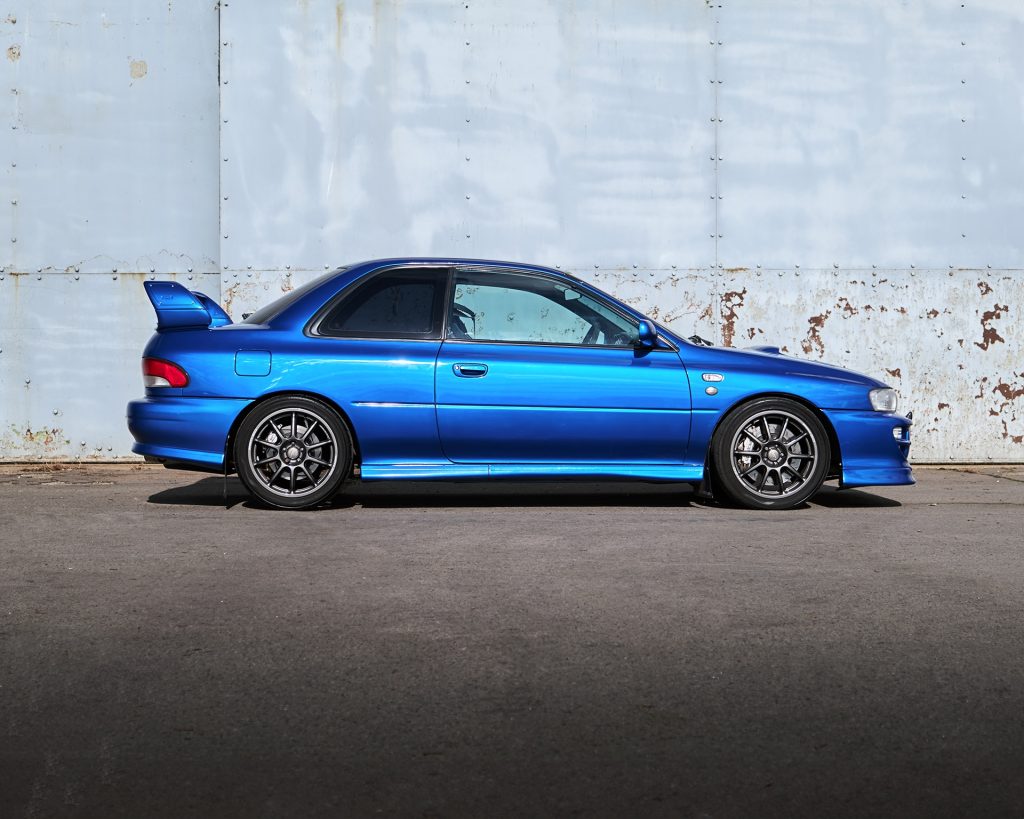
First-generation Subaru Impreza prices have soared over the past few years. Once considered the preserve of a relatively small enthusiast group, the model has become much more appreciated by the mainstream thanks to the rise in Japanese Domestic Market (JDM) classics as a whole, and demand for the top model, the 22B. Although the record for that car – £480,500 set by Iconic Auctioneers in August 2023 – was significantly boosted by the car’s first owner, rally legend Colin McRae, values of all special-edition first-generation Imprezas have climbed, too.
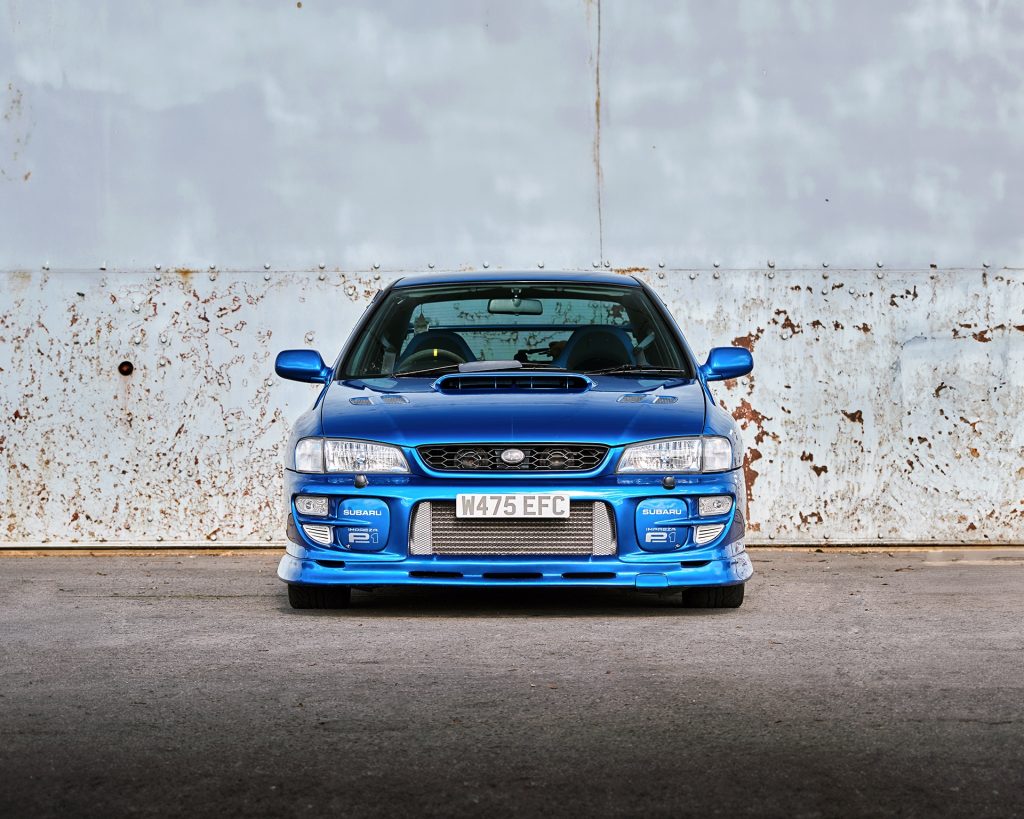
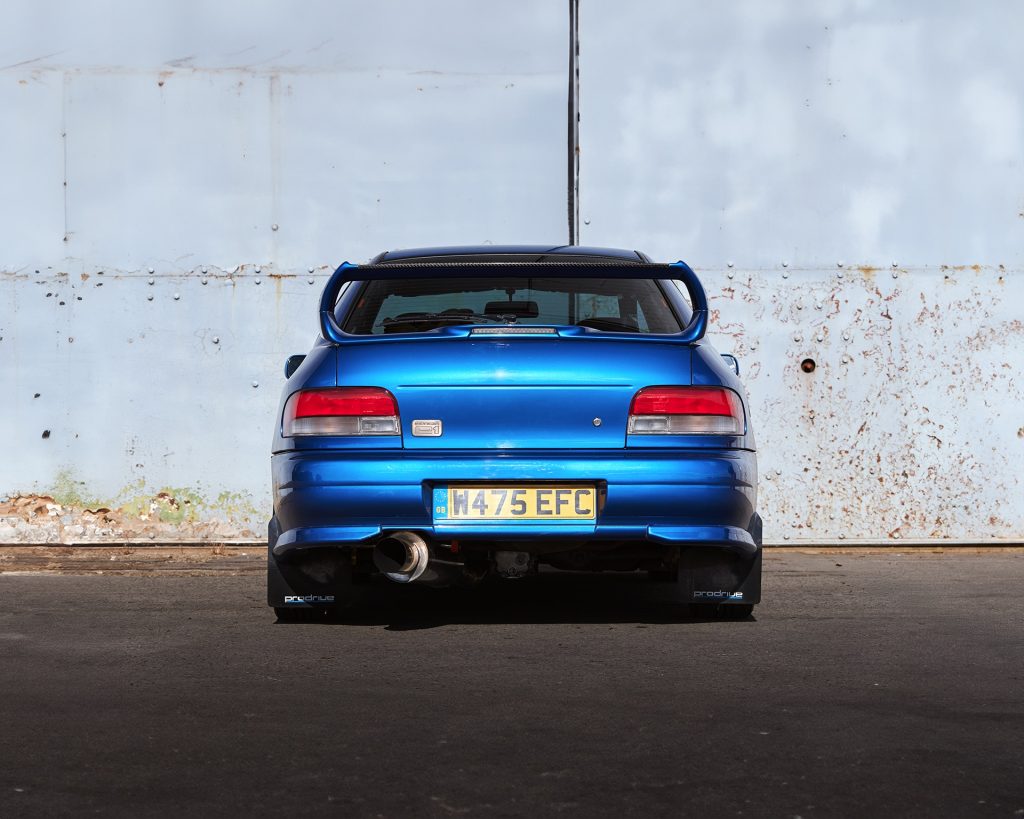
The P1, or Prodrive 1, was designed to echo those same rallysport links. Released in March 2000 and limited to 1000 examples all painted in Sonic Blue, the P1 was optimised for British roads and developed by Prodrive to create the ultimate UK-spec Impreza. Peter Stevens, designer of the McLaren F1, was called in to refine the body design and the turbocharged 2.0-litre EJ20 engine, which was breathed on at Prodrive’s Banbury headquarters to produce 276bhp. The addition of ABS meant the stopping was as good as the going.
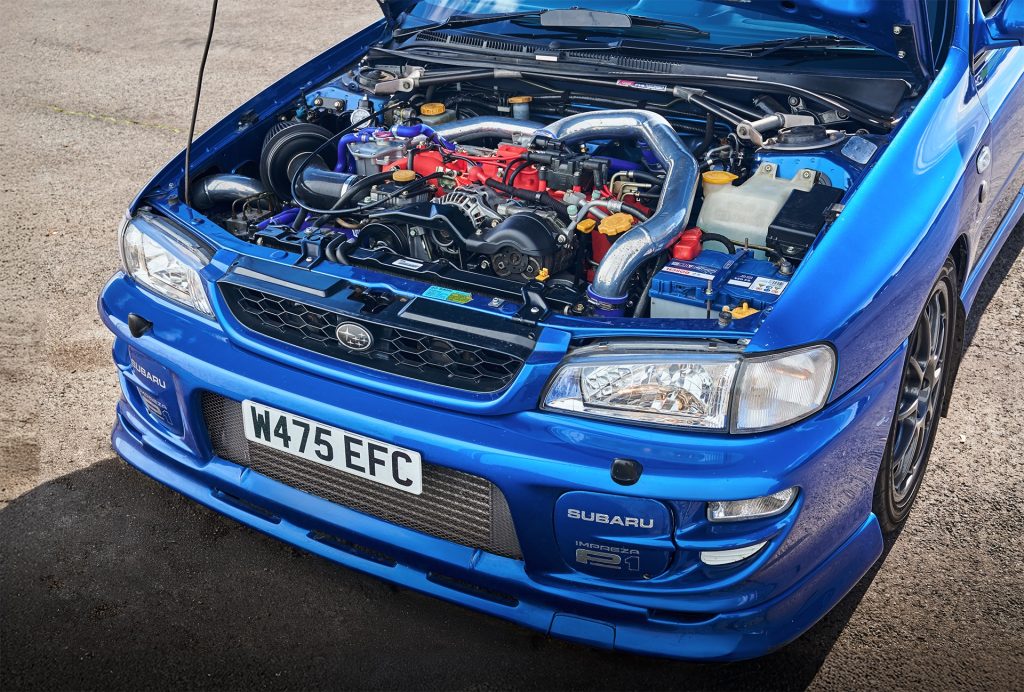
The P1 has aged well. The design retains the now-iconic GC shape, but the lack of ubiquitous gold wheels marks it out as different from the rest of the Impreza crowd. The interior, felt to be uninspiring by the motoring press at its launch, now seems stylish and unfussy. Prices have risen a lot in the last few years – the UK Hagerty Price Guide ‘excellent’ value was £32,000 in September 2022 and two years later was £50,500, but Hagerty believes that prices may increase further still. Many of these cars have been driven hard, and the gulf between top and bottom values is huge: Hagerty’s ‘fair’ price is 61 per cent lower than its top ‘concours’ value. Pristine, low-mileage cars will probably increase most, but regularly driven cars that are a little rough around the edges will be much more affordable and great fun.
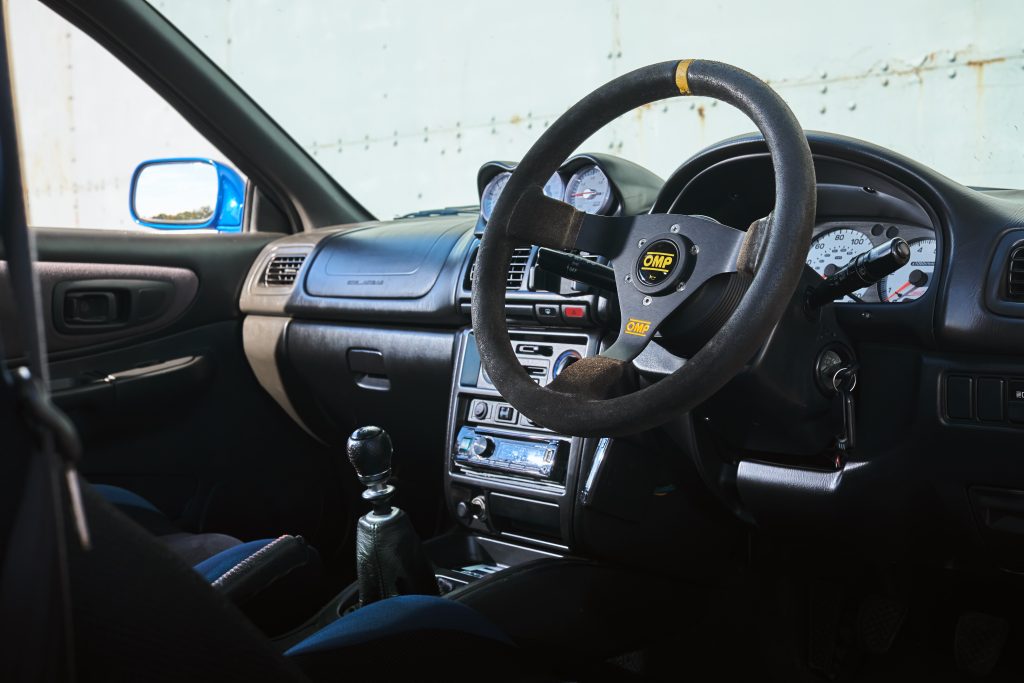
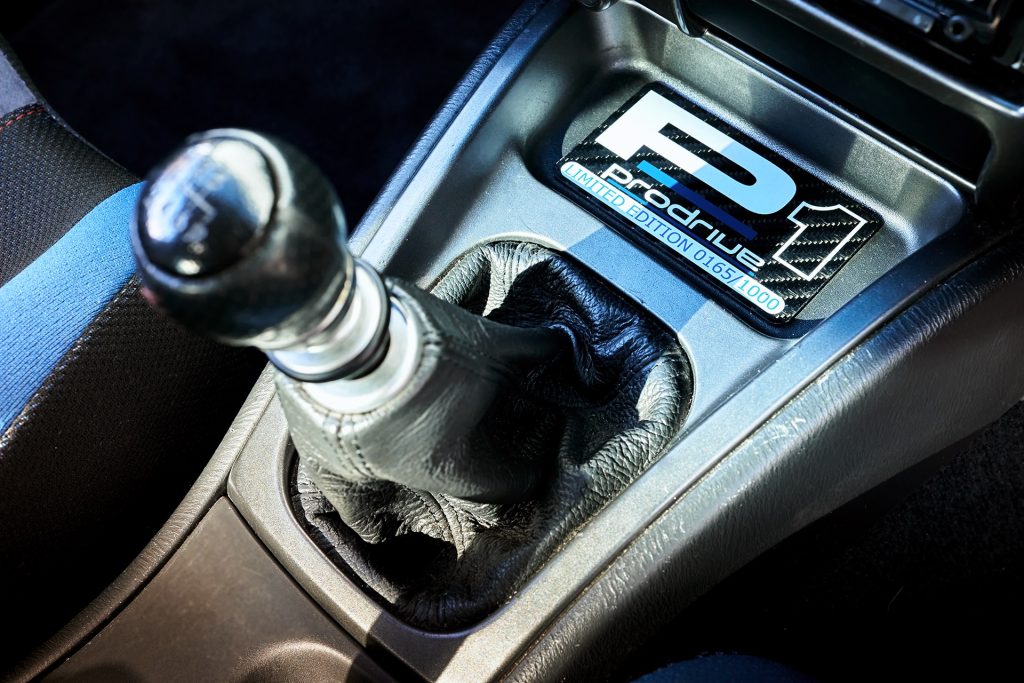
Owner Justin Beaveau from Salisbury was saving for a modern Impreza when he saw the P1 and decided to buy it. The car had been in storage for some years and seemed a bargain, but shortly after recommissioning, a broken con rod embedded a piston in the head, and a total rebuild was required. The result, Beaveau reports, is an engine that “pulls and keeps pulling, a lot smoother than before the rebuild.” His car now gains a lot of attention at shows. “Rust is one thing to look for,” he says, “especially underneath and on the arches. Missing parts can also be expensive to replace – I’ve seen the unique Prodrive badges for sale for £800 each, and original mats cost £400. But it’s a great car – it sticks to the road and drives superbly.”
Value Range: #1 – £72,500 #2 – £50,000 #3 – £38,500 #4 – £25,000
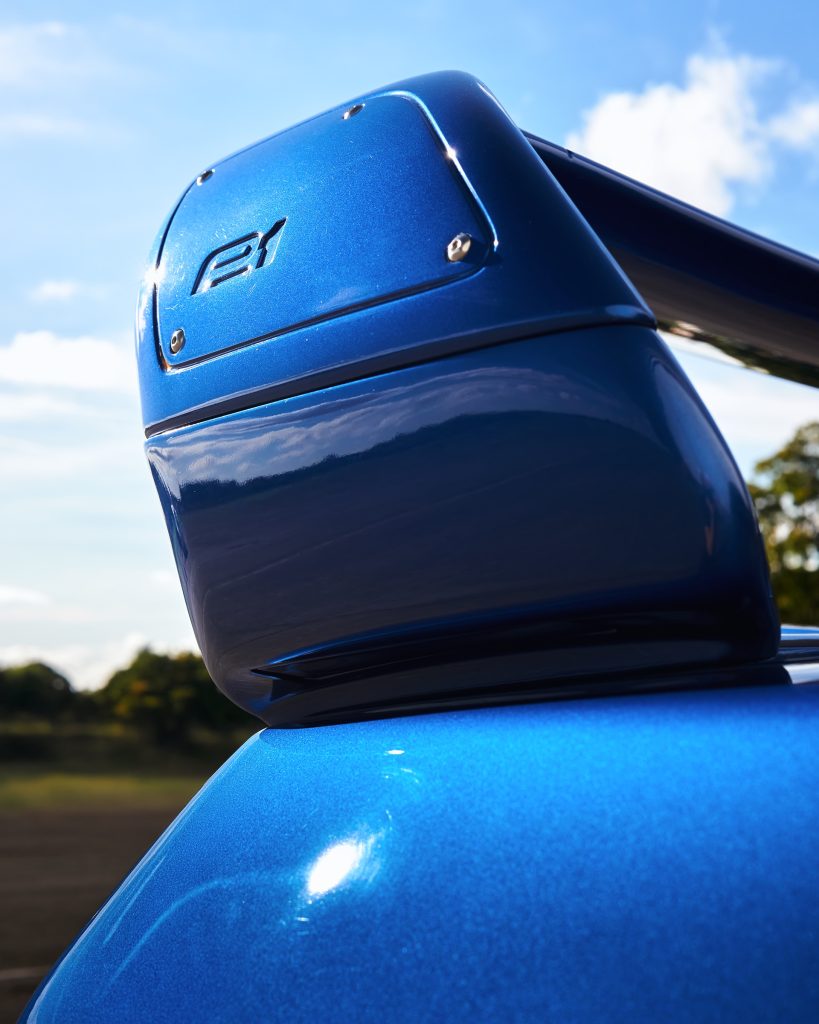
* * *
The Luxury Pick: 1977–80 Rolls-Royce Silver Shadow II
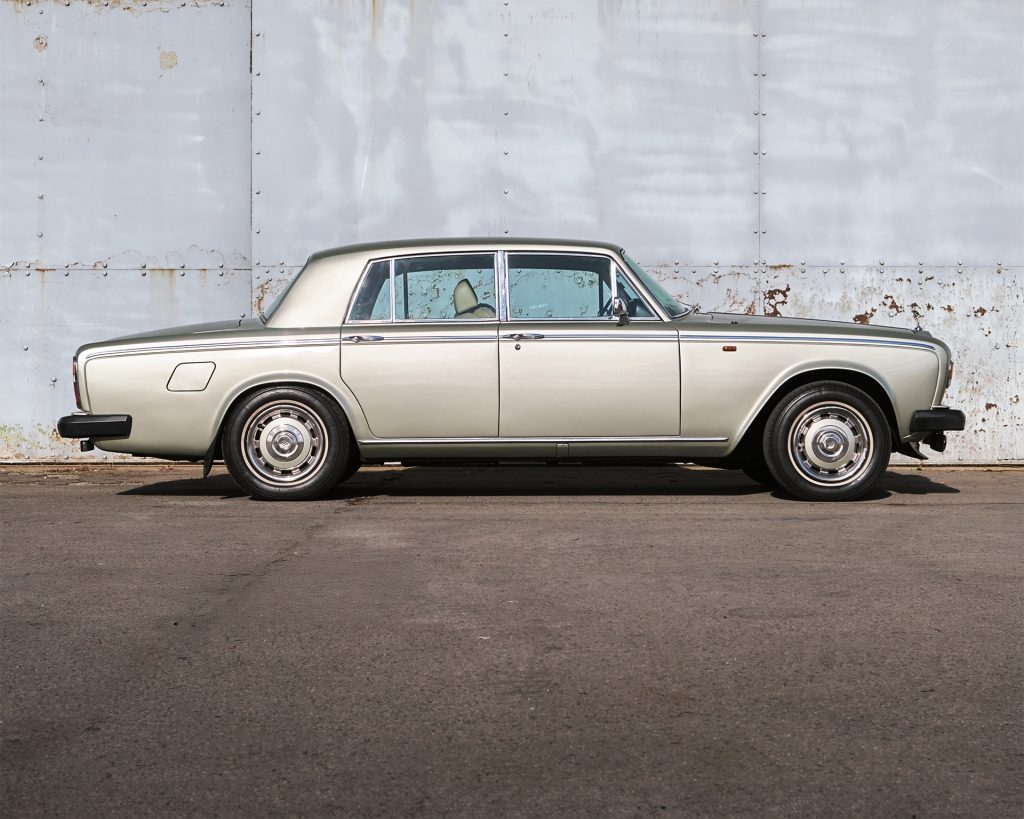
The owner of the Rolls-Royce Silver Shadow II that Hagerty borrowed for its photoshoot apparently used this car to travel to and from his home in the south of France. I can totally understand why: In the greatest traditions of the glorious old marque, the car is wonderfully luxurious on the inside, delivers bucketloads of effortless power, and has the regal “old money” design that turns heads to this day.
“No other car offers this sort of comfort, glamour, and reliability,” Chris Leath from Hillier Hill, the company that has looked after this car for many years, tells me. “The Shadow is a great car to own, as it’s relatively easy to service and parts availability is good,” he says. “The engineering is very strong. As long as they have been well maintained, they will usually get you to where you need to go, even if something is a little wrong.”
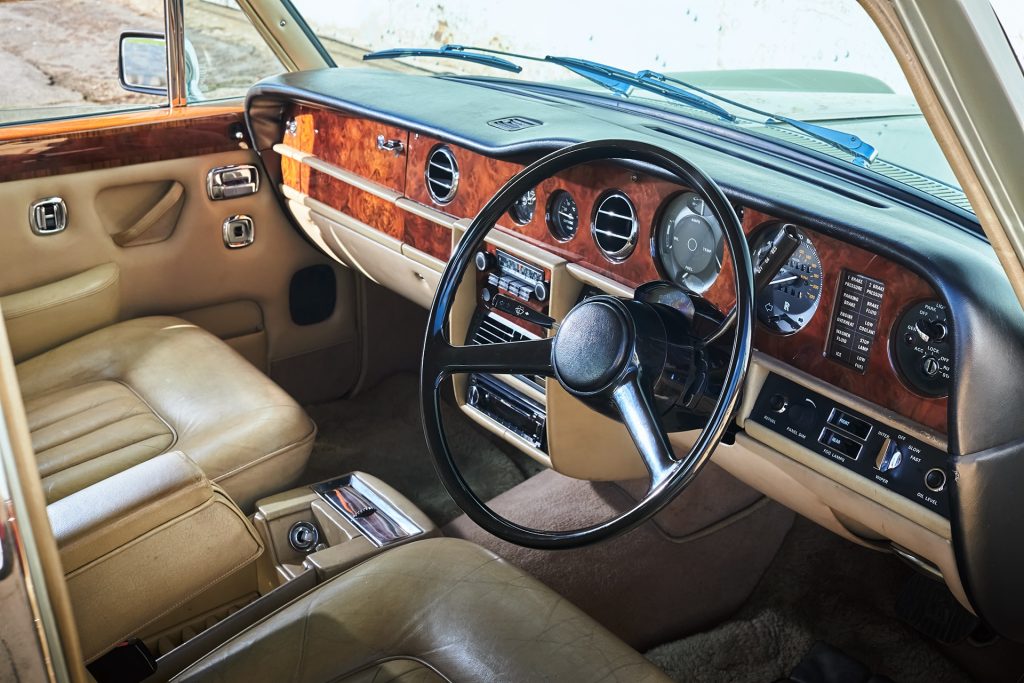
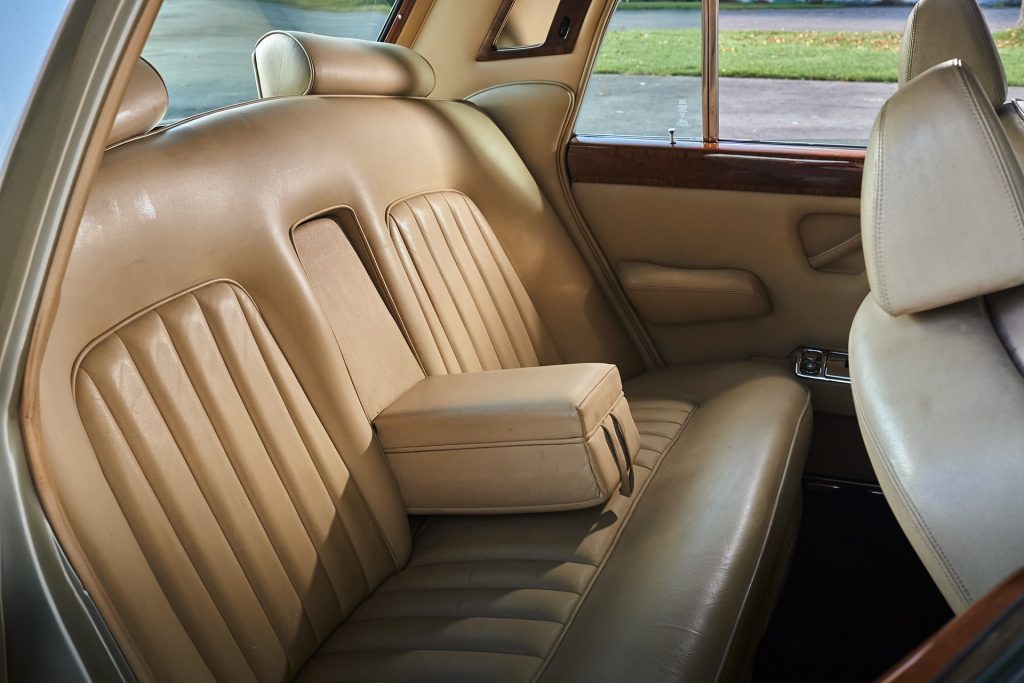
Bodywork is one of the areas which Leath says can be a problem. “Sills and arches can rust, and leaking windscreen seals can allow drips down the A-pillar that pool and rot the floors.
Ownership demographics of this grand lady are firmly pointed toward the older generations: 56 per cent of Hagerty quotes are from owners born before 1965, compared with 35.2 per cent average across all cars. Prices, possibly as a consequence, have been relatively static – Hagerty’s #2 (excellent) value was £15,400 in December 2021 and is just £100 higher today. The big difference has been in the top examples, though: In the same time, the very top #1 (concours) price is up over 20 per cent, to £31,900. This is a good sign – a rise in top examples often encourages more to be spent on maintaining other, less pristine cars. All in all, it’s a massive amount of car for the money, and if I had the garage space (and a house in France) I’d drive one of these all day long.
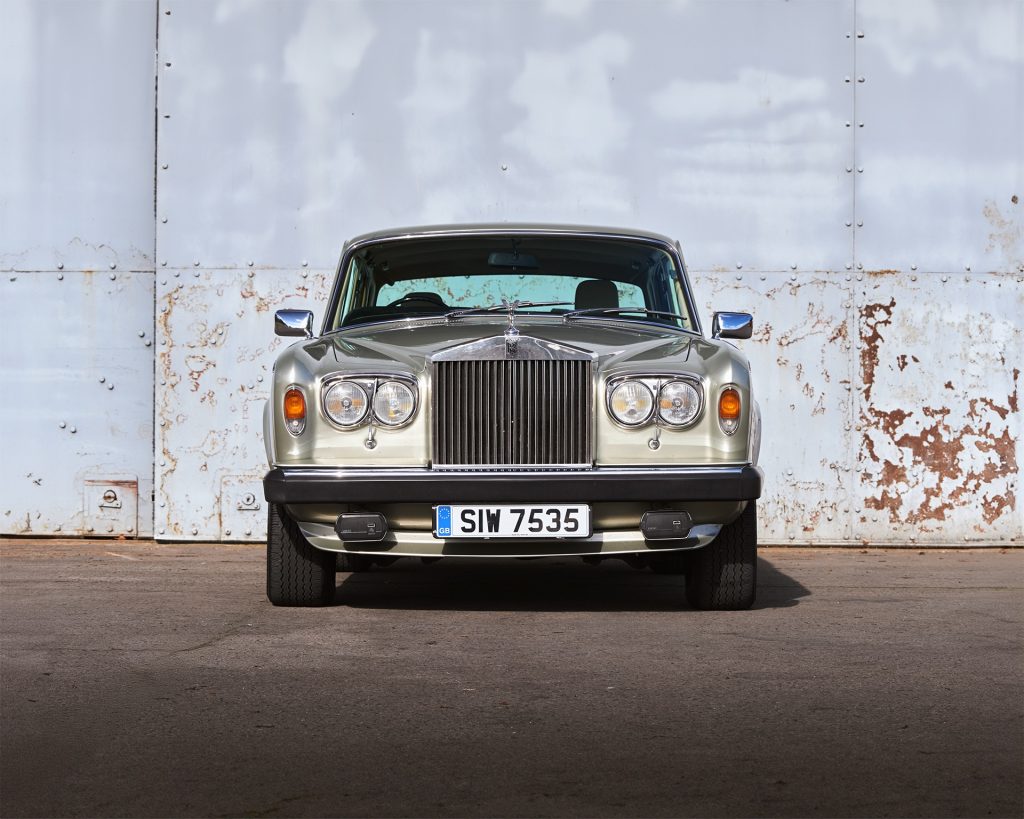
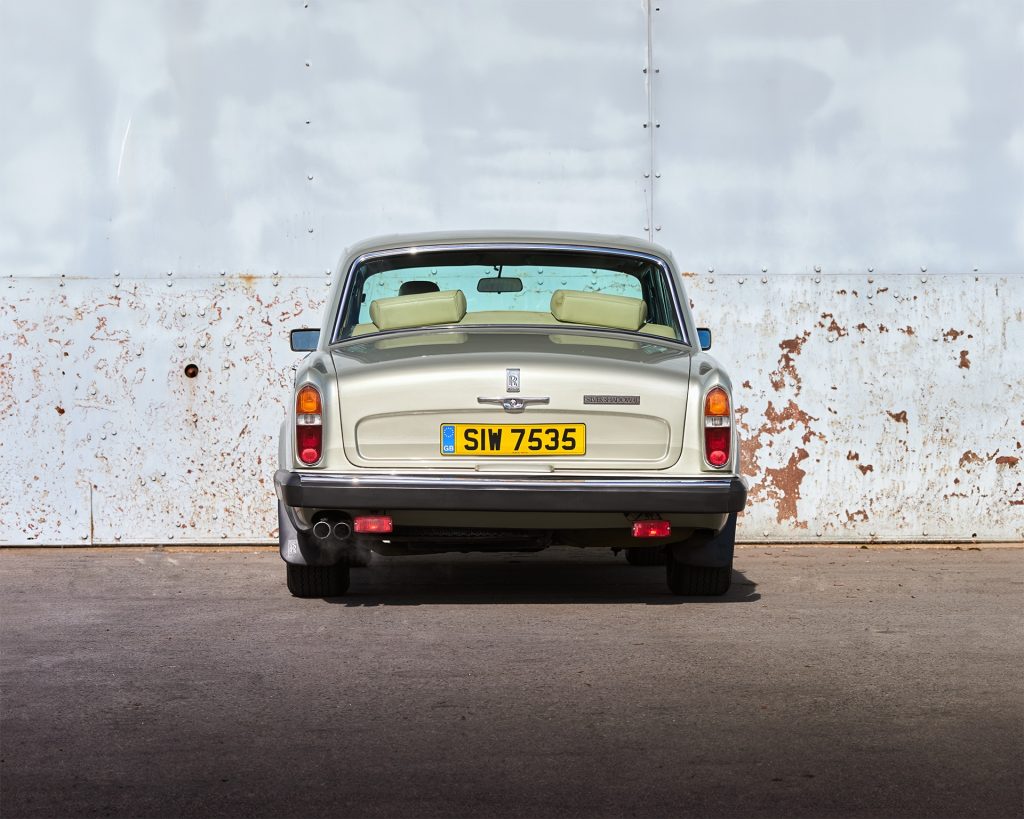
Value Range: #1 – £28,700 #2 – £14,000 #3 – £8700 #4 – £5700
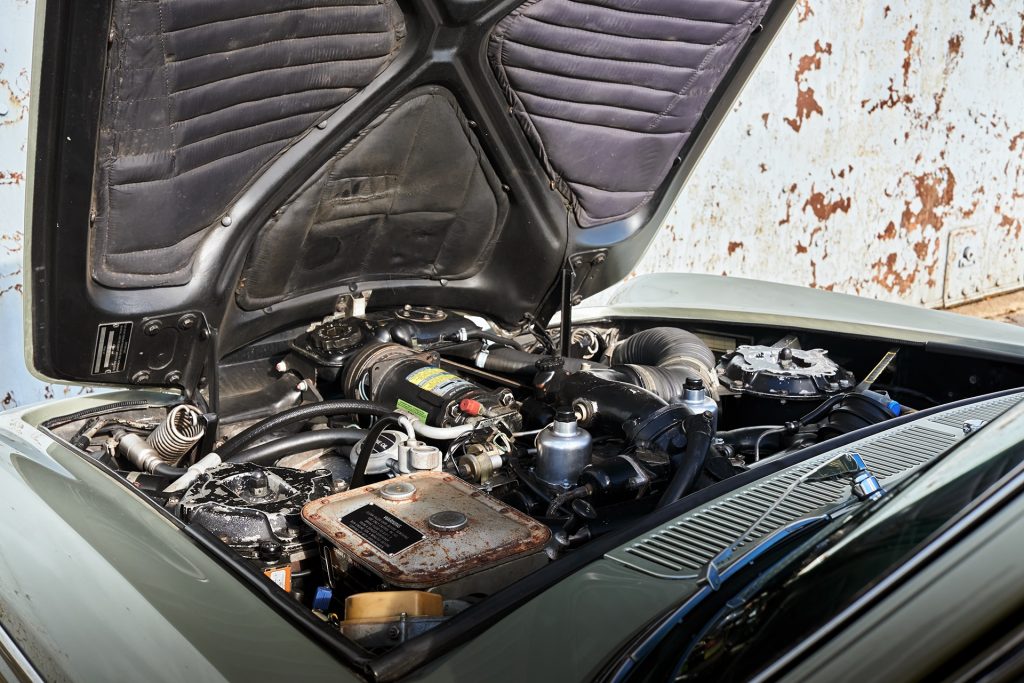
* * *
The Gold Index Pick: 1994–99 Ferrari F355
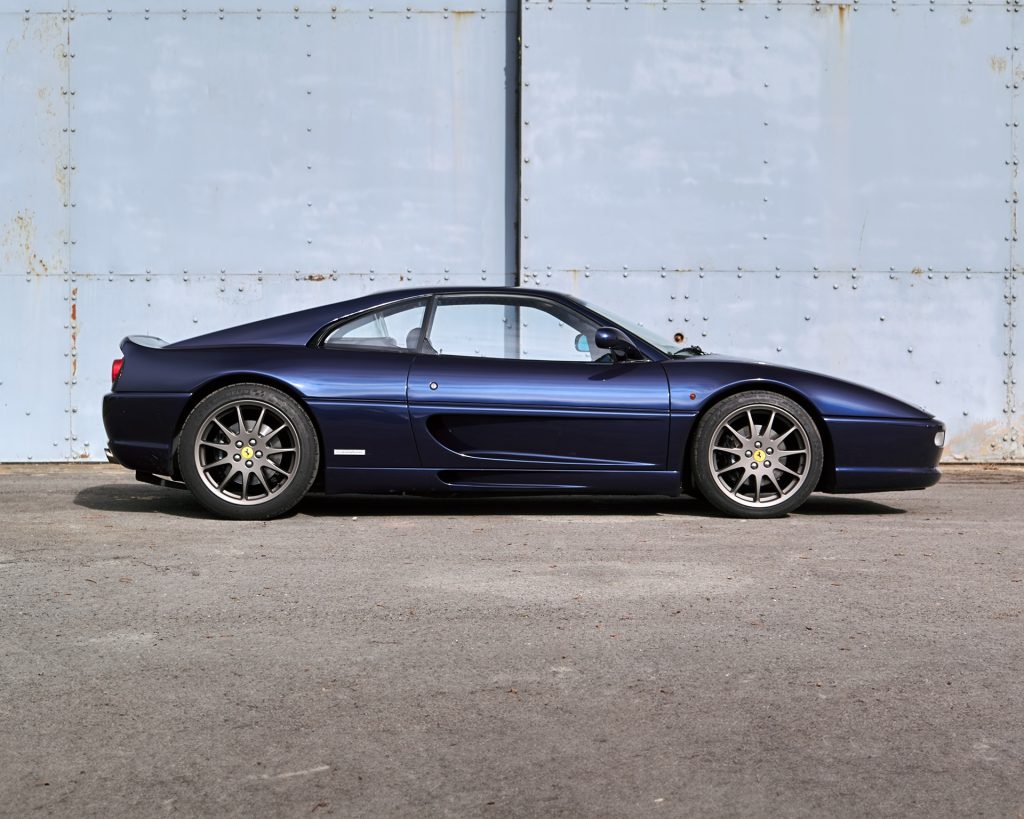
A mid-1990s Italian sports car isn’t the most obvious choice for a daily driver, but the owner of the 1994 Blu Scuro example we found for our Bull Market shoot says that it is remarkably practical. “I’ve owned the car for 10 years,” Laurence Preston told me. “It’s comfortable, does around 20 miles to the gallon, and is super reliable. It’s also well-mannered on the road, even without any real driving aids to speak of, except ABS.” It may help that Laurence – Loz to his friends – runs Autolusso Bournemouth, a company specialising in the maintenance and restoration of Italian cars. “I have had the engine out once,” he says. “I rebuilt the top end as the valve guides were worn, something common in these engines, but otherwise the engineering is great. Parts availability is OK except for interior trim, which can be really hard to find.
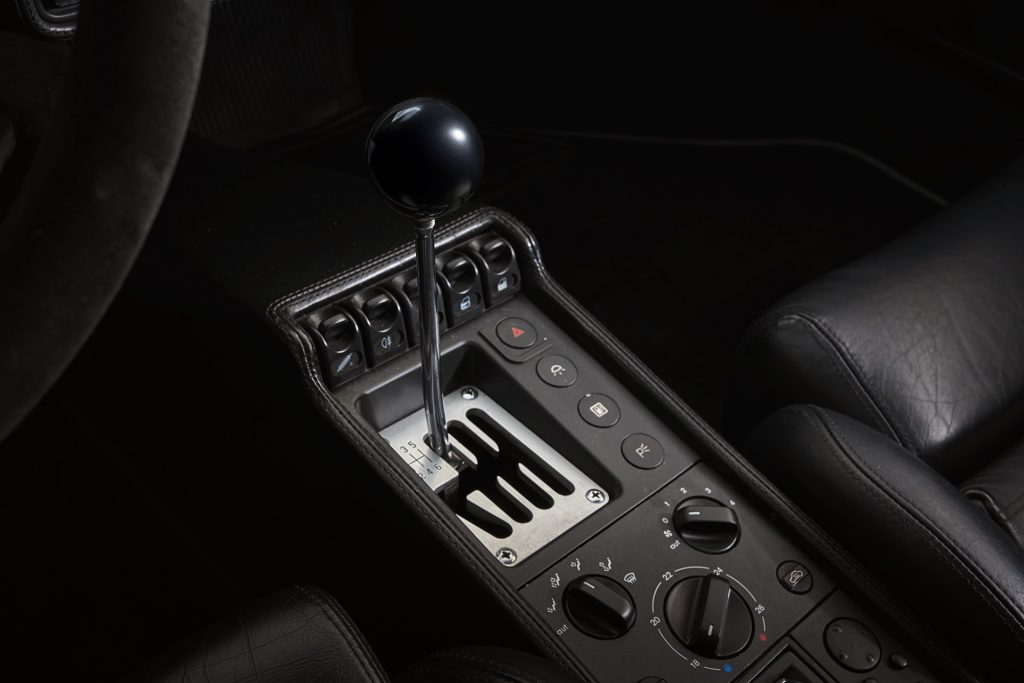
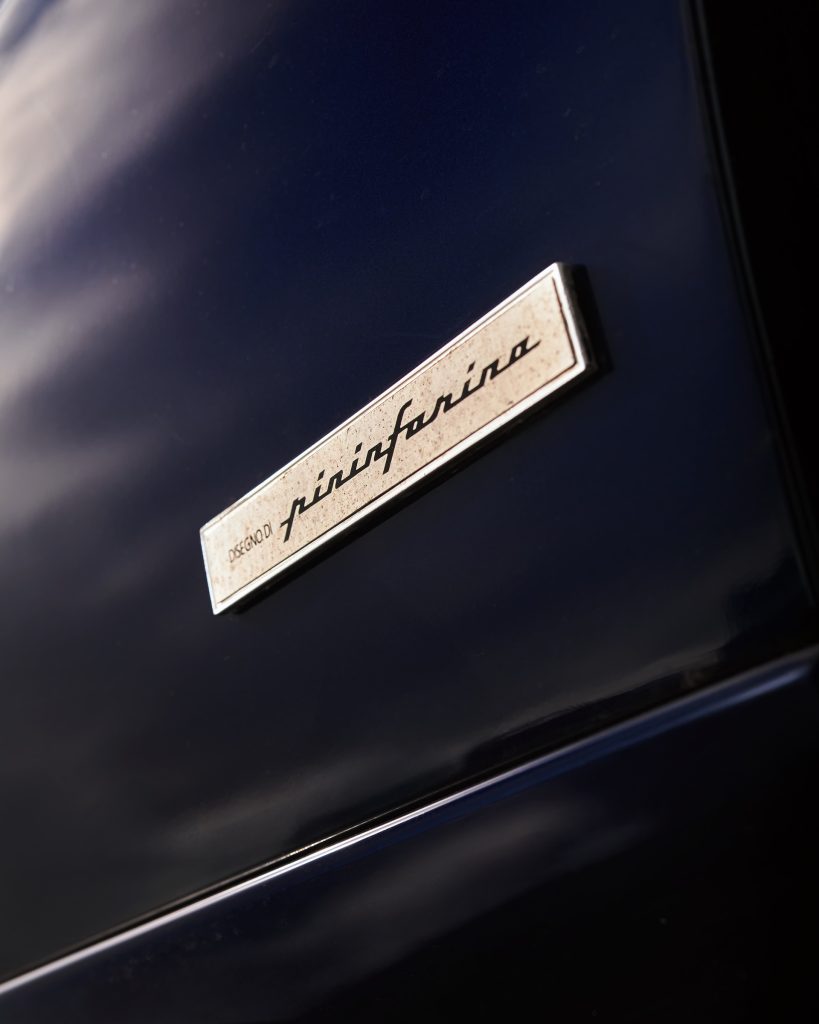
The car definitely looks the part, and the model has really hit the headlines over the past few years, as some consider it a peak driver’s Ferrari, mixing 1980s-inspired design and analogue engineering. A relatively new addition to the UK Hagerty Price Guide, values have risen as a consequence, up 6.2 per cent in the past three years to £73,300 for a standard Berlinetta in #2 (excellent) condition. In the US, growth has been even more extreme, and the guide price for the same model there is now $196,000 (£152,000), although this includes a 25 per cent premium for manual-gearbox examples. Carbon seats and magnesium wheels are also in demand, although the latter tend to degrade and are often replaced by factory option alloys, as Preston has done.
So, why pick this car? Demographically, the F355 attracts a younger generation, with 67 per cent of Hagerty quotes worldwide coming from people born since 1965. Gen X owners account for nearly 40 per cent of quotes, well above the 31 per cent for all cars. In collectability terms, it ticks pretty much every box: the right badge on the front; one of Pininfarina’s best designs from the 1990s, complete with pop-up headlamps; and there are Berlinetta, targa, and spider options, plus ultra-rare Fiorano handling packs for people who want something special. Plus, the F355 has appeared in hundreds of movies and TV shows, including The Fast and the Furious, Free Guy, and Transformers: Rise of the Beasts. All this combines to put the Ferrari in the 83rd percentile in Hagerty’s Collectability Algorithm – in the same ballpark as the Subaru Impreza 22B, the Ferrari 365 GTB/4, and the Aston Martin DB5, but for a fraction of the price.
Value Range (Berlinetta): #1 – £93,200 #2 – £73,300 #3 – £62,700 #4 – £50,600 (+ 4–6% for GTS; +8–13% for Spyder)
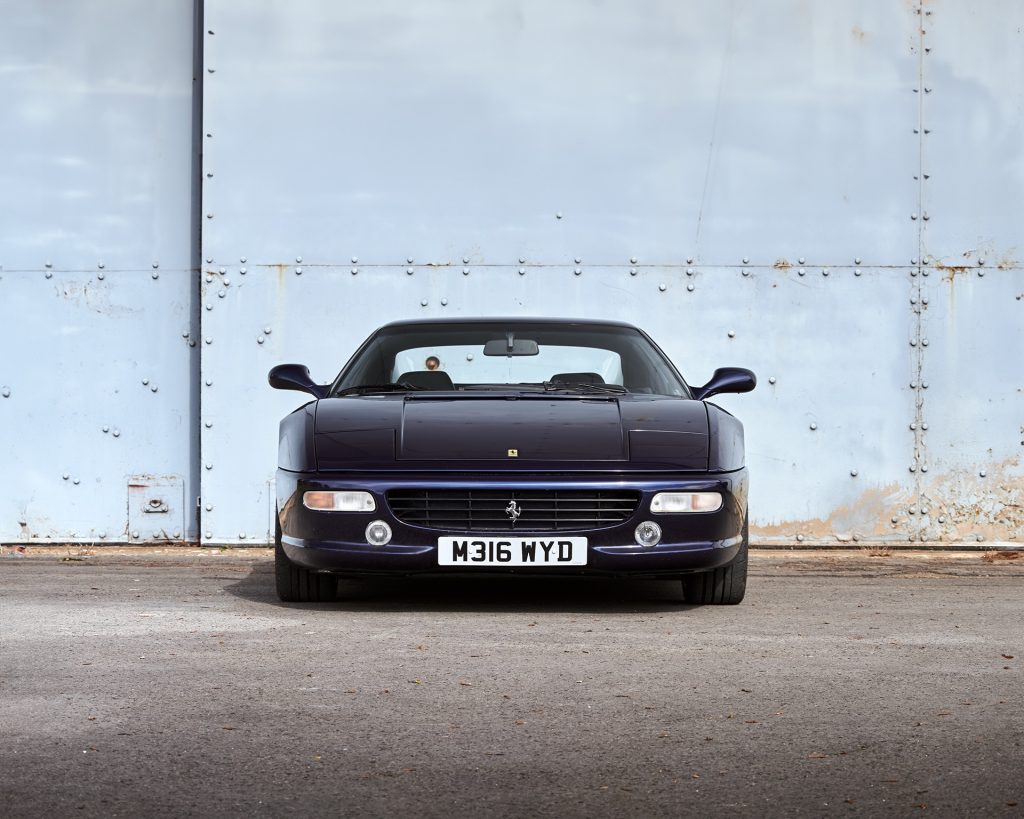
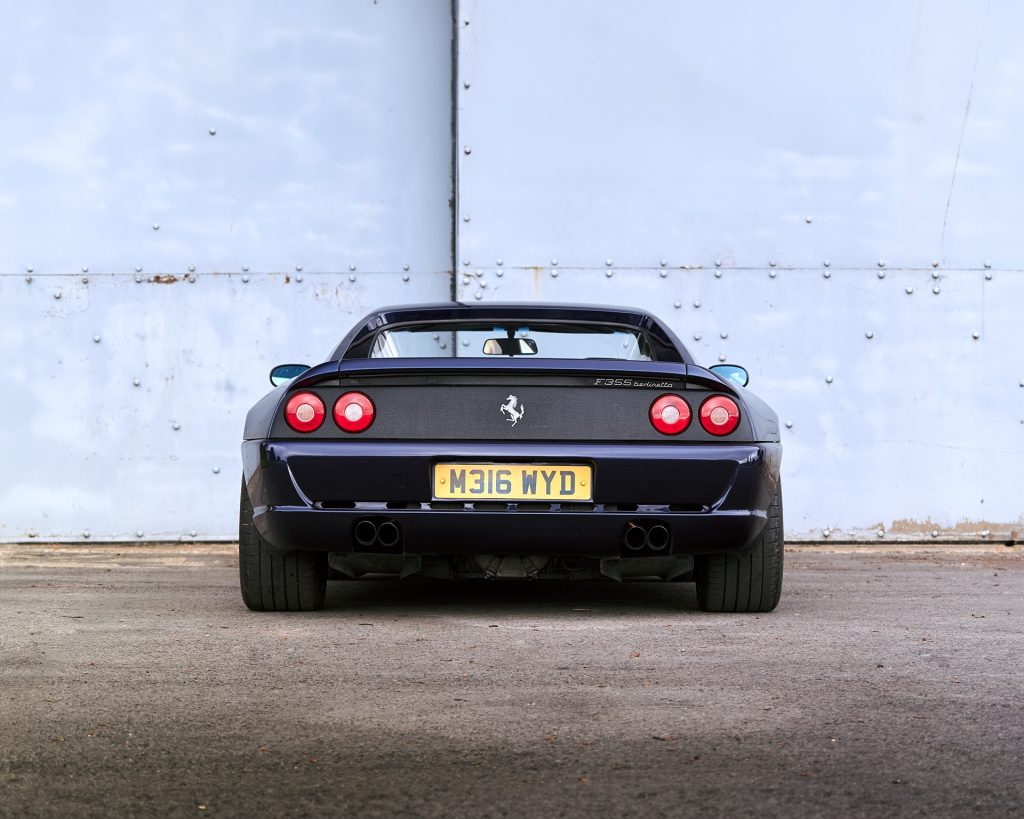
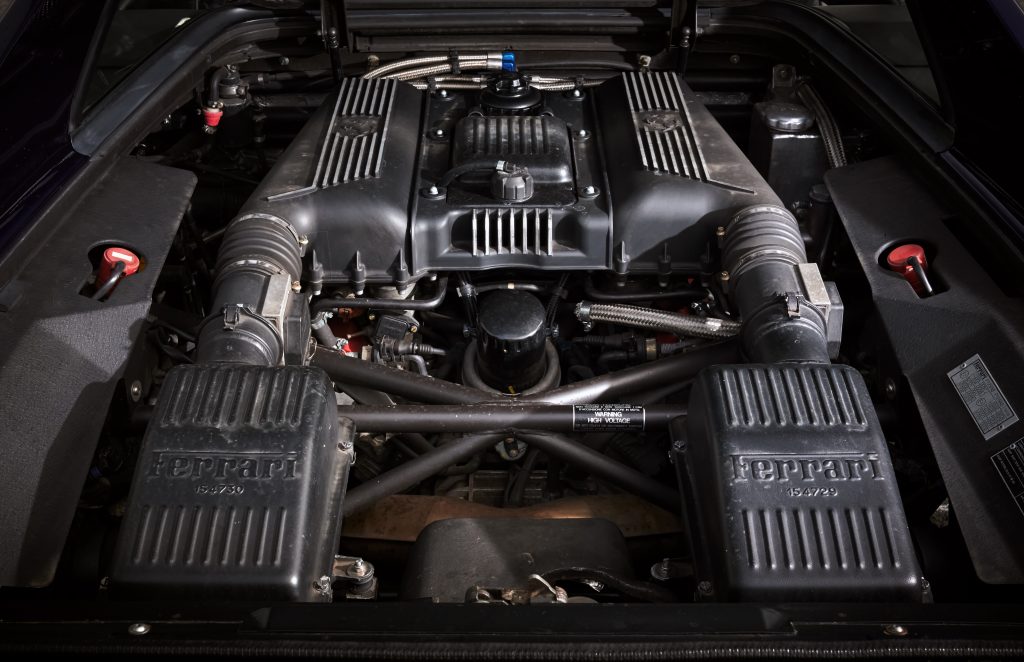
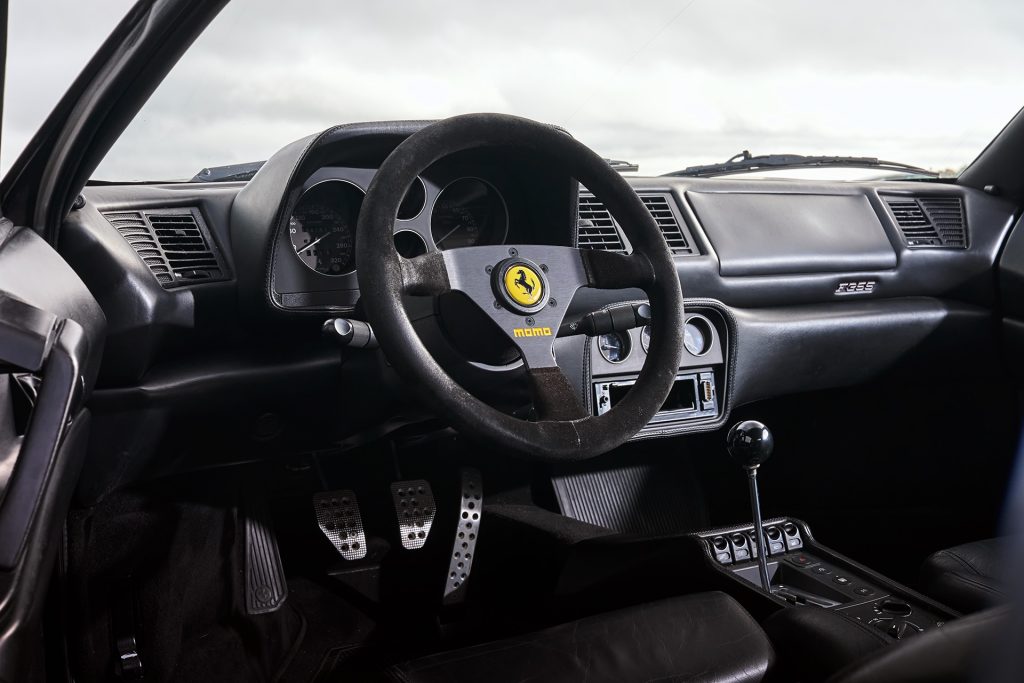
* * *
The Classic Index Pick: 1965–69 Porsche 912
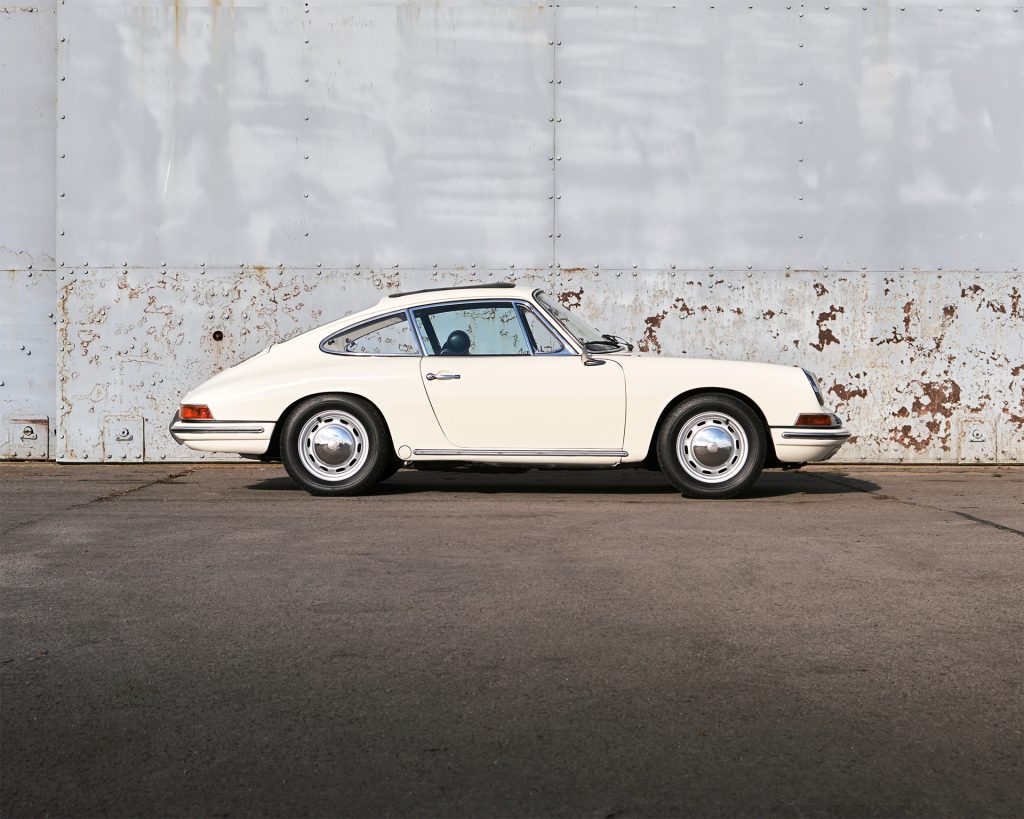
“It’s not a quick car by modern standards, but no original 1960s Porsches are,” says Richard Wrightson of Wrightson Automotive, who brought the Porsche 912 to our Bull Market shoot. “What you get from the 912 is a wonderful sense of balance, noise, and superb engineering packaged with a beautiful design. Especially with the optional five-speed ’box, it pulls really well and turns heads everywhere.”
Let’s be clear, this isn’t one of Hagerty’s Bull Market picks that we expect to rise dramatically in value, rather that the model now offers seemingly great value for money.
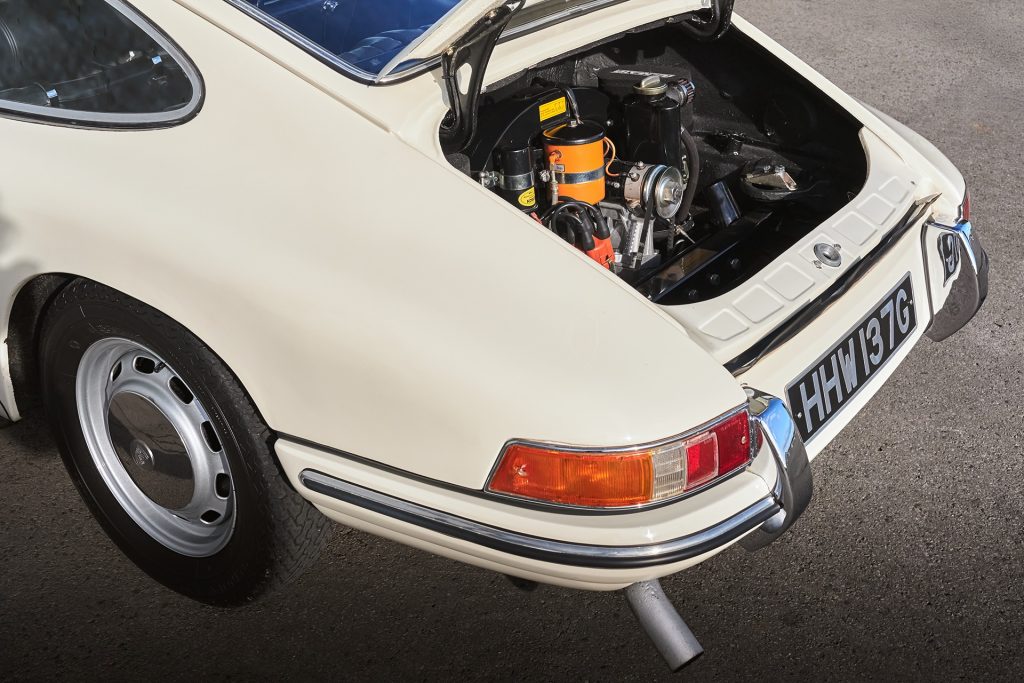
From around 2018 to ’19, “long bonnet” pre-1973 Porsche values peaked. Most in demand were very early 2-litre models along with the 2.4S, and big prices were paid – upwards of £300,000 in some cases. UK Hagerty Price Guide #2 (excellent) values of the four-cylinder 912 were much lower but still tracked upward, rising quickly from £41,700 in 2017 to £54,300 the following year and peaking at £60,620 in mid-2022. At that point, specialist dealers were asking in excess of £125,000 for rare examples of short wheelbase, right-hand-drive cars with matching numbers. Since then, values have dropped and the Hagerty #2 price now sits at £57,800. That covers the vast majority of cars on the UK market that are imported and left-hand drive, RHD still demanding a big premium.
So, why is the 912 a good buy? First, you get the early 911 experience for a fraction of the price. Other than the very earliest 912s, the vast majority of the car is identical to its six-cylinder sibling, sharing the same interiors, bodywork, suspension, and electrics. Just the engine is different, and as Wrightson says, these days many people consider the four-cylinder to be more suited to the chassis than the heavier six. Then there’s the design: If you’re a Porsche person, the early cars are what every later 911 is judged against. They are delicate, understated, and beautiful – not showy or brash in any way. The build quality is superb and everything, from the washers to the windscreen, has a part number, and Porsche still stocks most of it. Demographically, the majority of owners (around 70 per cent) are either baby boomers or Gen X, although millennial ownership is rising, sitting at about 19 per cent (up from around 5 per cent in 2016).
Value Range: #1 – £90,100 #2 – £57,800 #3 – £41,800 #4 – £27,900
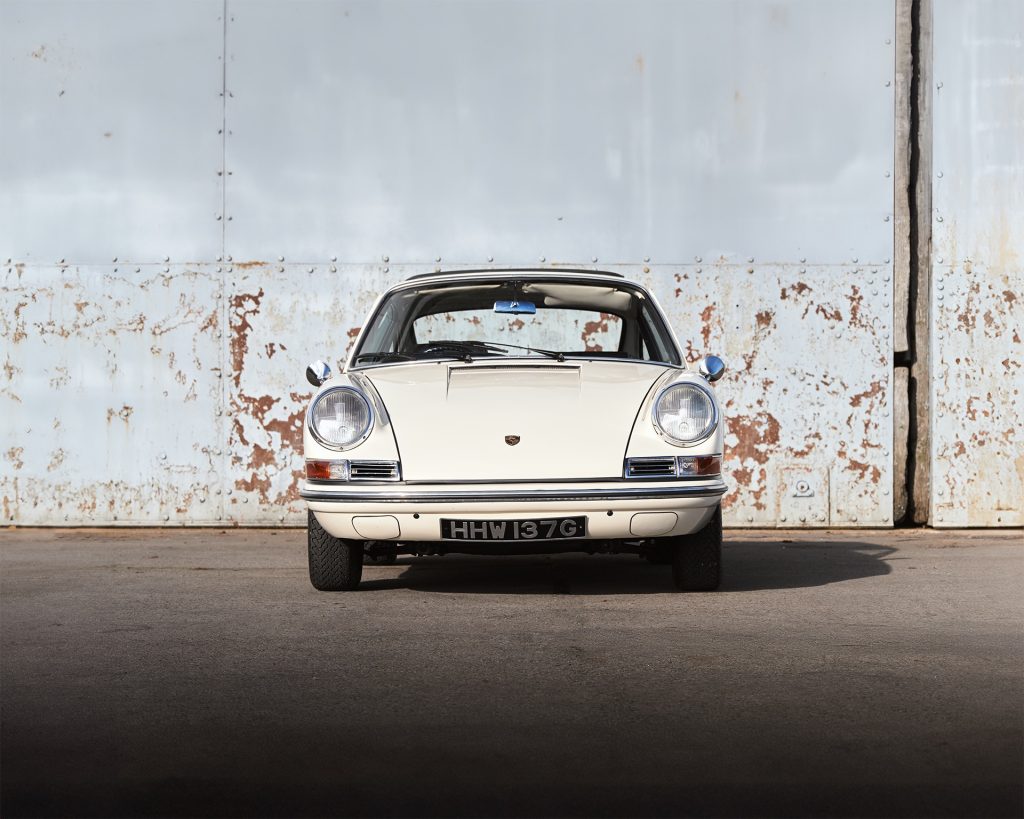
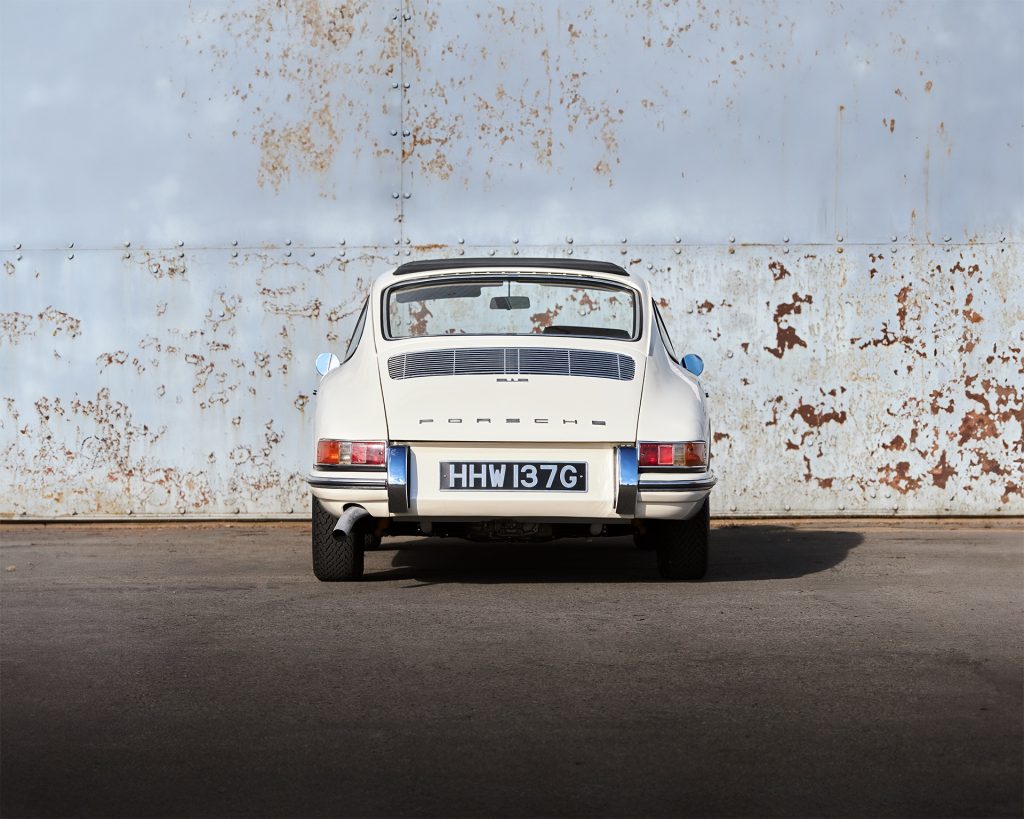
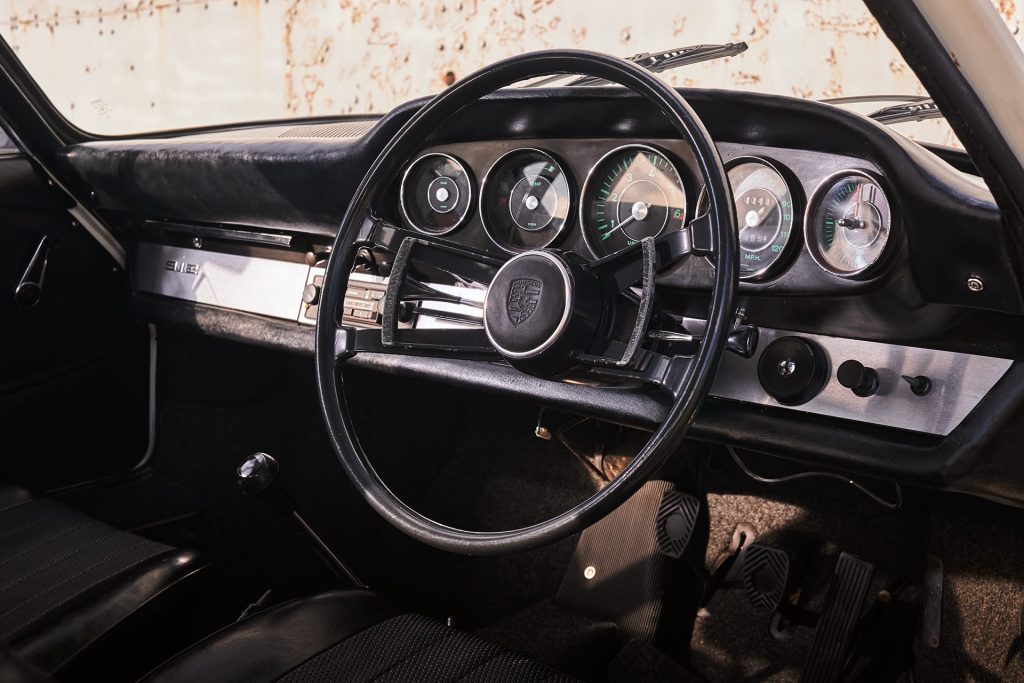
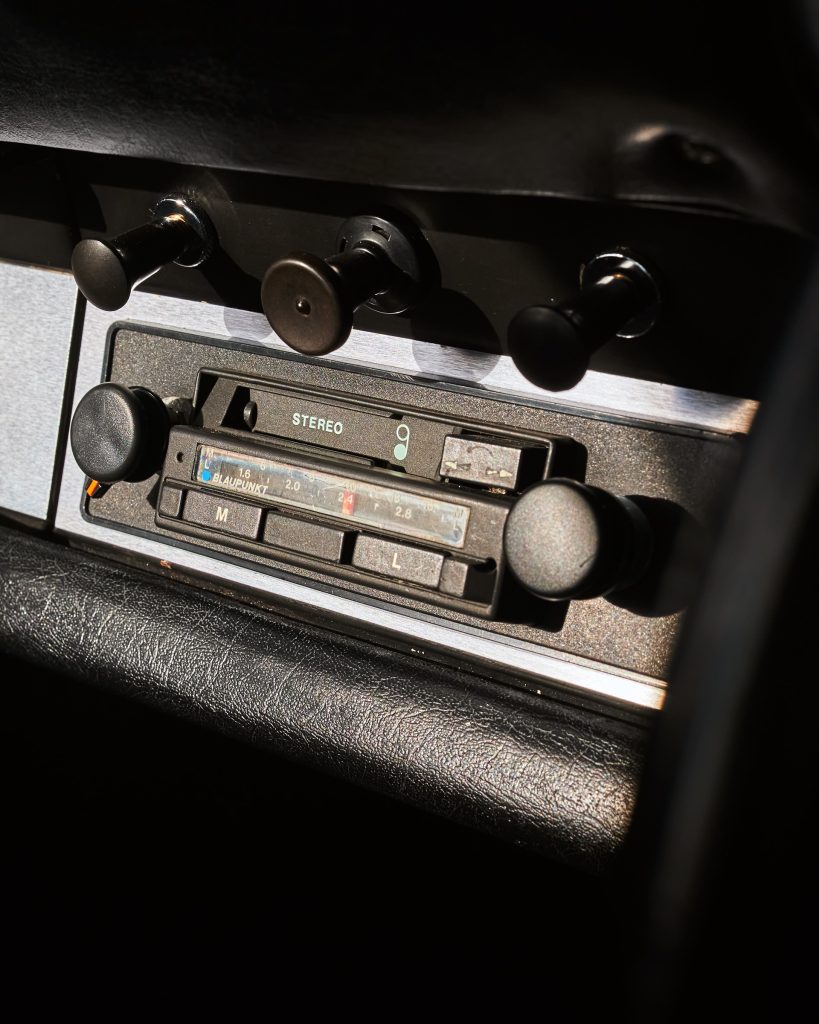
* * *
The Hot Hatch Index Pick: 2002–05 Alfa Romeo 147 GTA
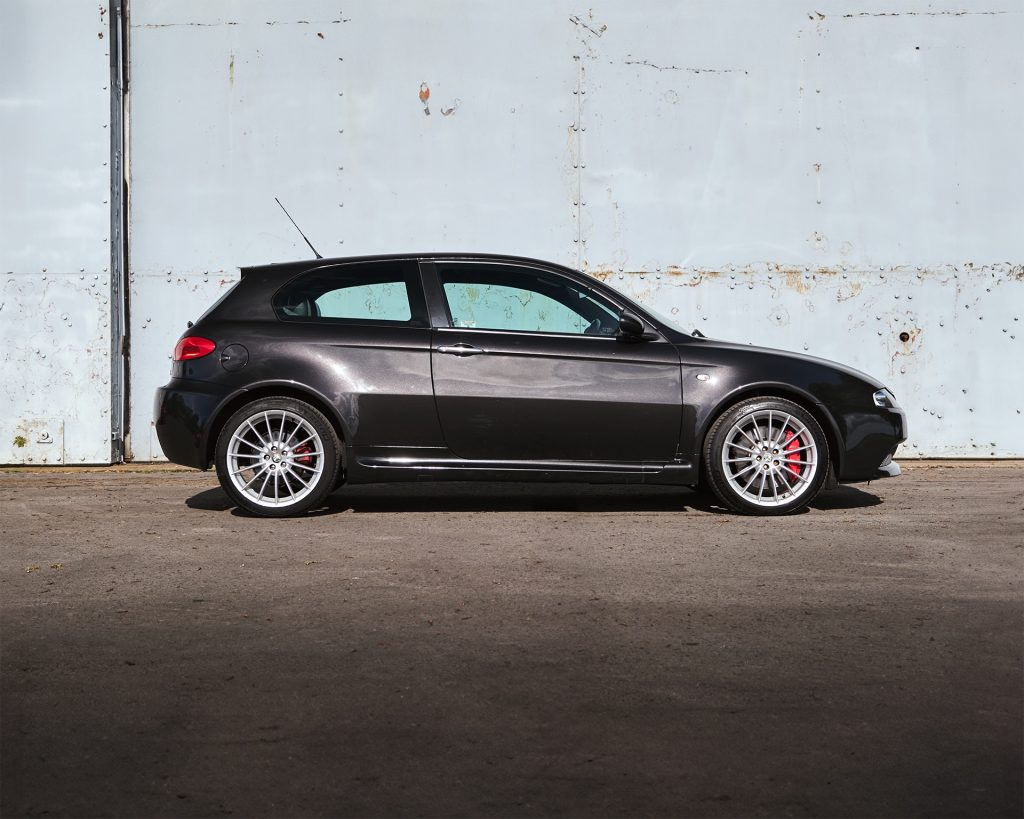
I remember driving a 147 GTA during one of the press launches back in 2002. My immediate reaction, even as a dedicated lover of everything Alfa, was that it was crazy and far too powerful for its own good (more specifically, for the good of those inside it). My instincts seemed to be borne out by the result of the day: one driver booked by the police, another ending up in a ditch.
Time has been kind to the 147 GTA. Its six-cylinder Busso engine is now considered to be one of the finest ever produced and in its 3.2-litre form reached its production zenith, combining power, sound, and the most beautiful design. The car always struggled to put its power to the tarmac through the stock differential, but delivery has been improved massively over the years by enhanced aftermarket Quaife/Q2 differentials, rectifying its main Achilles heel.
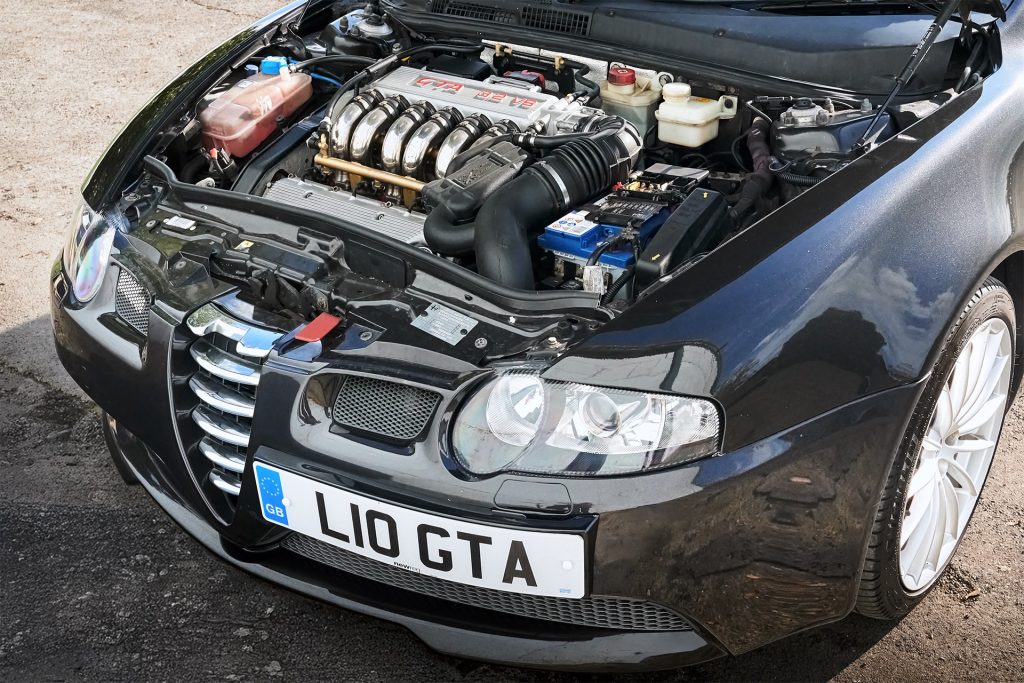
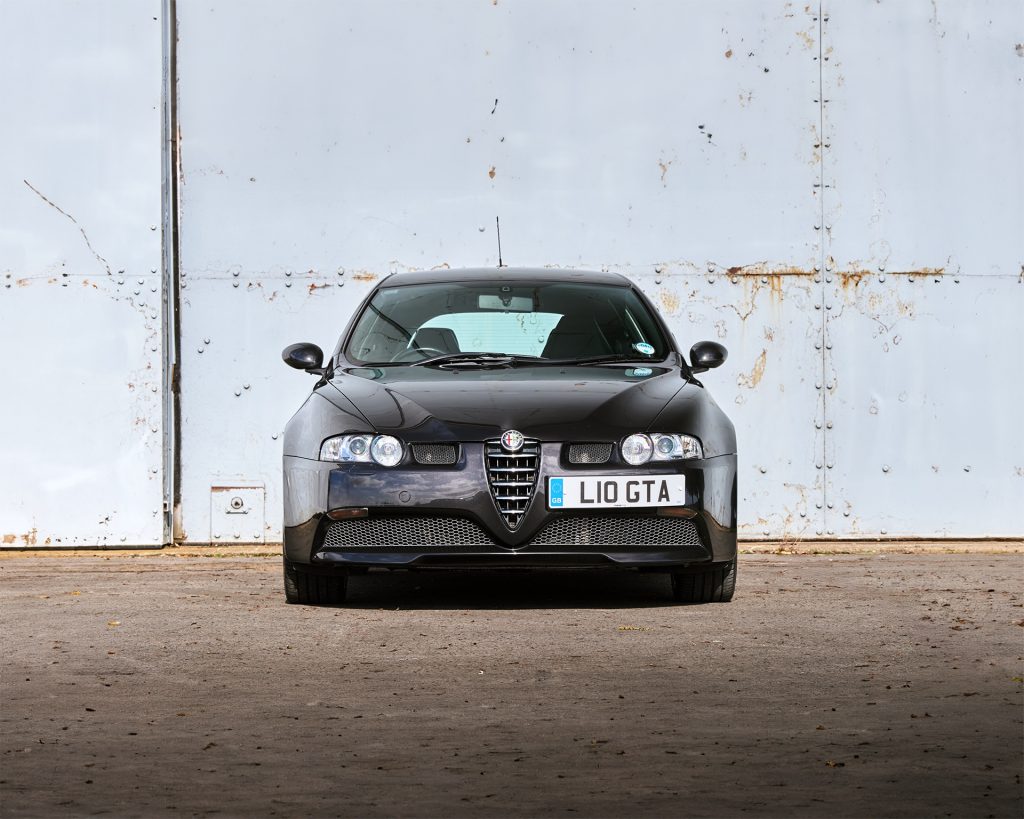
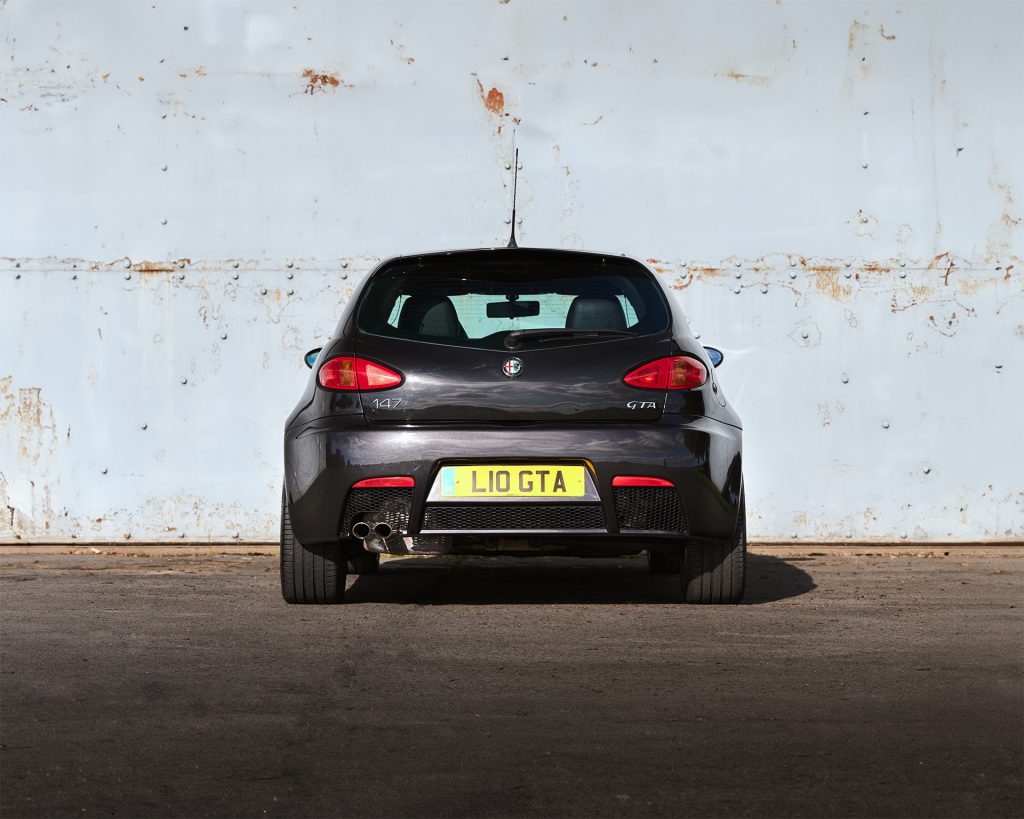
The car we found for the Bull Market shoot is owned by Alex Leathley and has the all-important Quaife diff fitted, plus Xenon headlamps, but otherwise it is standard. “It’s an exciting drive, revs freely and you have to push it through the gears,” he says. “It can be a handful and tends to “nod” when you brake hard, but you get used to it.” Leathley found a well-maintained, low-mileage car and recommends the same. “You have to check the sills aren’t bent,” he says. “If they’re not jacked up properly, these can be easily damaged.”
Hagerty’s UK policy and quote data for the 147 GTA are interesting, showing a very young demographic. For those GTAs we cover, more than 70 per cent of owners were born since 1965, and in the last 12 months, we’ve not provided a new quote to anyone older than that. Also, values compared to the 147 GTA’s older sibling, the 156 GTA, have started to flex in the smaller car’s favour, with the best examples being offered for advertised values in the mid-£20,000s. But the main reason the 147 GTA was chosen for this year’s Bull Market is that it offers an extraordinary driving experience for a relatively sensible price. Quite simply, it’s the spiritual successor to the 105-series Alfa Romeo GTA coupes that made such an impact on both road and race track back in the 1960s and ’70s.
Value Range: #1 – £20,500 #2 – £16,100 #3 – £11,600 #4 – £8500
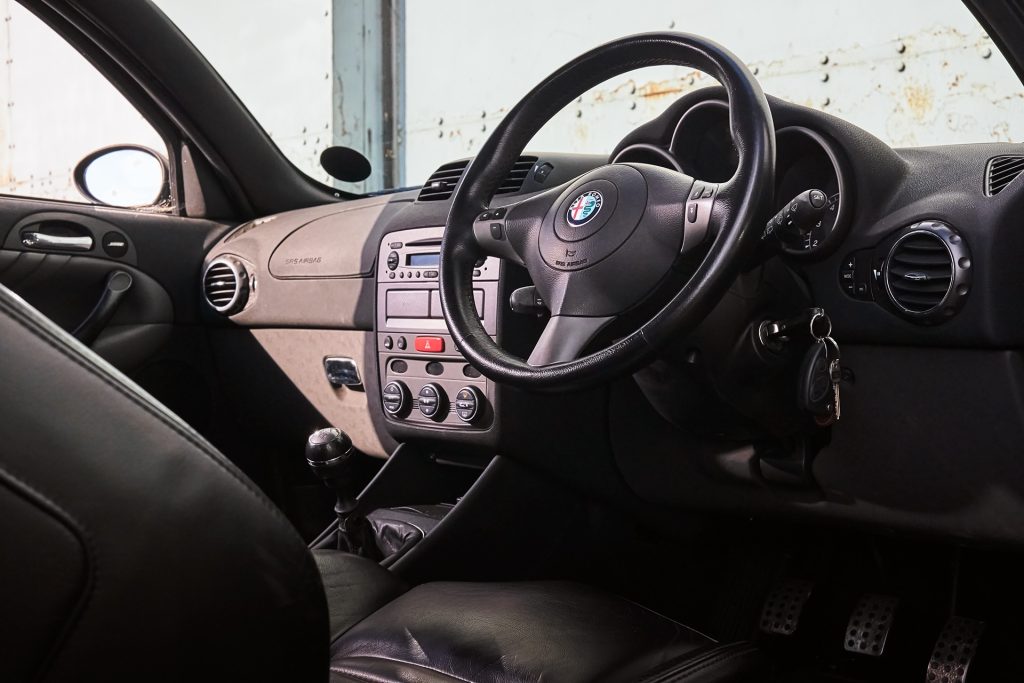
* * *
The FOTU* Pick: 1994–2000 Toyota RAV4
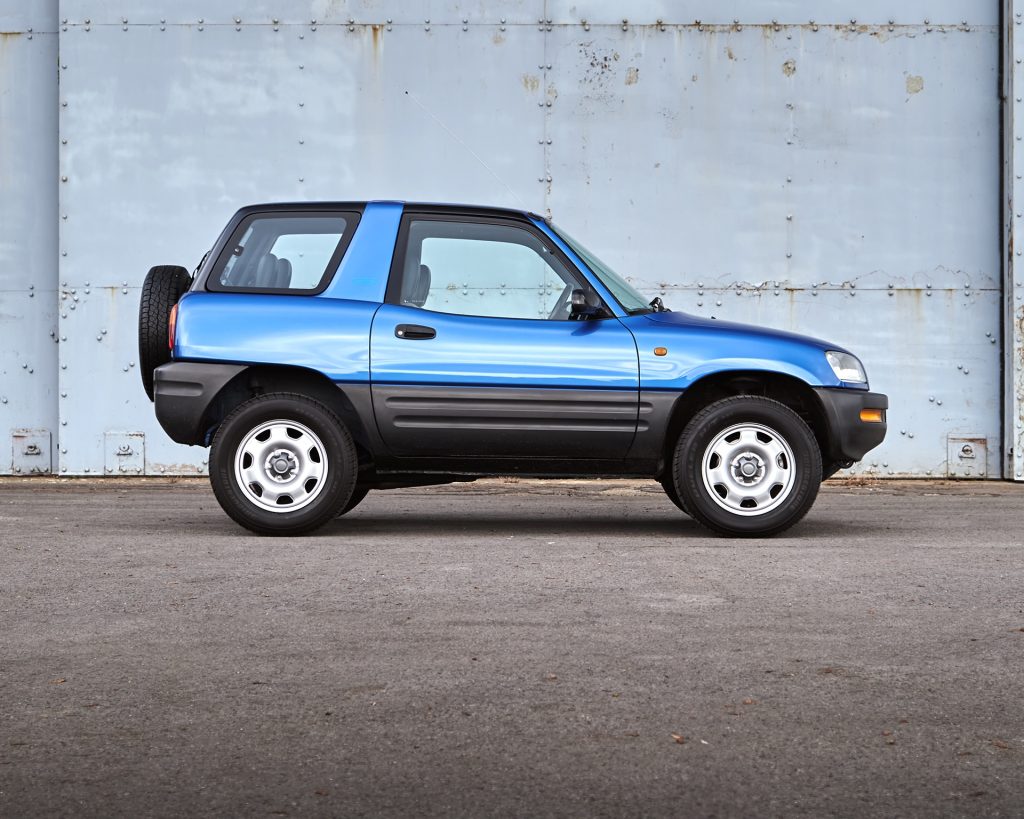
(*Hagerty’s Festival of the Unexceptional)
Of all the cars Hagerty pulled together for this year’s Bull Market shoot, the Toyota RAV4 probably drew the most interest. As arguably the first compact crossover/SUV, it’s easy to forget just what an impact this model had on the cars that followed it, and the RAV4 remains well loved by many enthusiasts.
It helped that the RAV4 GS three-door example brought along by retired Toyota UK employee Richard Seymour was immaculate. I don’t use that term lightly, but this car, bought by Toyota’s press team about nine years ago and restored in-house, is nearing perfection. It was described by Seymour as “rough and rusty, covered with non-original modifications” when they bought it, so the team even purchased another example to provide a good-quality donor roof.
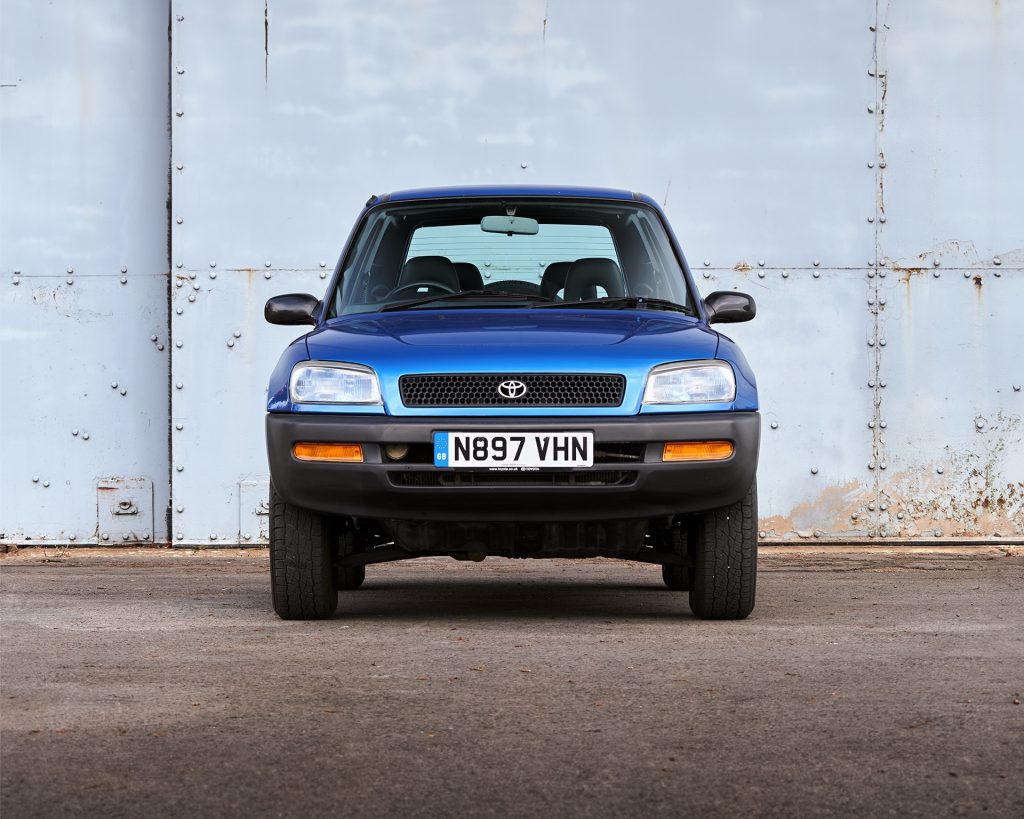
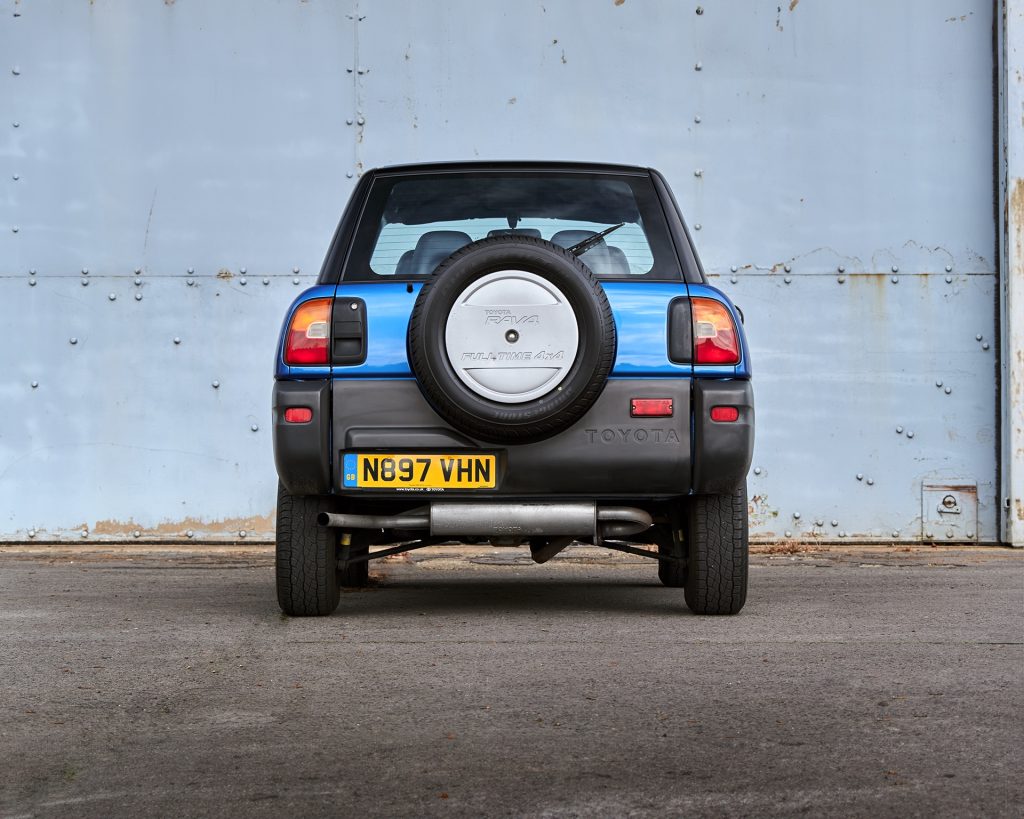
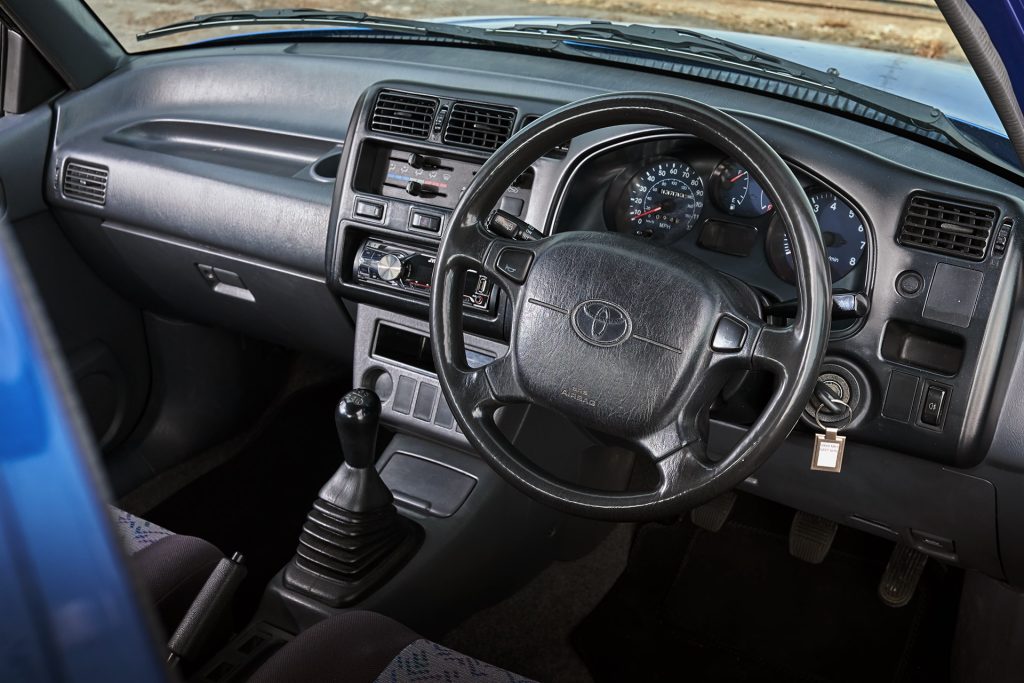
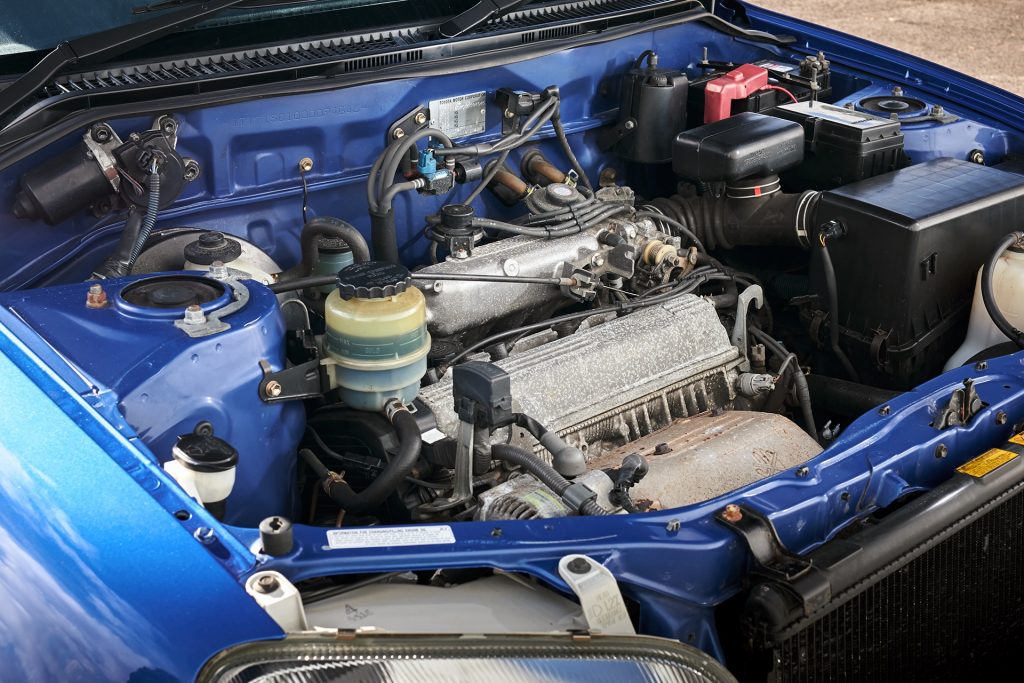
“It was meant to be an ‘off-road GTI’,” Seymour explains. “Four-wheel drive was combined with a low-ratio first gear to give it a real off-road capability, and the whole thing was over-engineered in typical Toyota fashion. The cam belt had a six year, 60,000-mile change schedule, but some have been known to go on for much longer.”
“Corrosion can appear, especially on suspension mounts, sills, and rear arches, but no more so than any other car of the time. The only problem area is the clutch – if that goes, it’s a big job to replace.”
That legendary Toyota build quality, combined with an instantly recognisable design and very low current prices mean that Hagerty believes the RAV4 is a great entry-level classic, plus you’ll be welcome at any future edition of Hagerty’s Festival of the Unexceptional. Even in top GX spec, a concours-ready example should set you back under £5000, if you can find one, as these early cars are now quite rare.
Value Range: #1 – £5100 #2 – £3300 #3 – £1400 #4 – £600
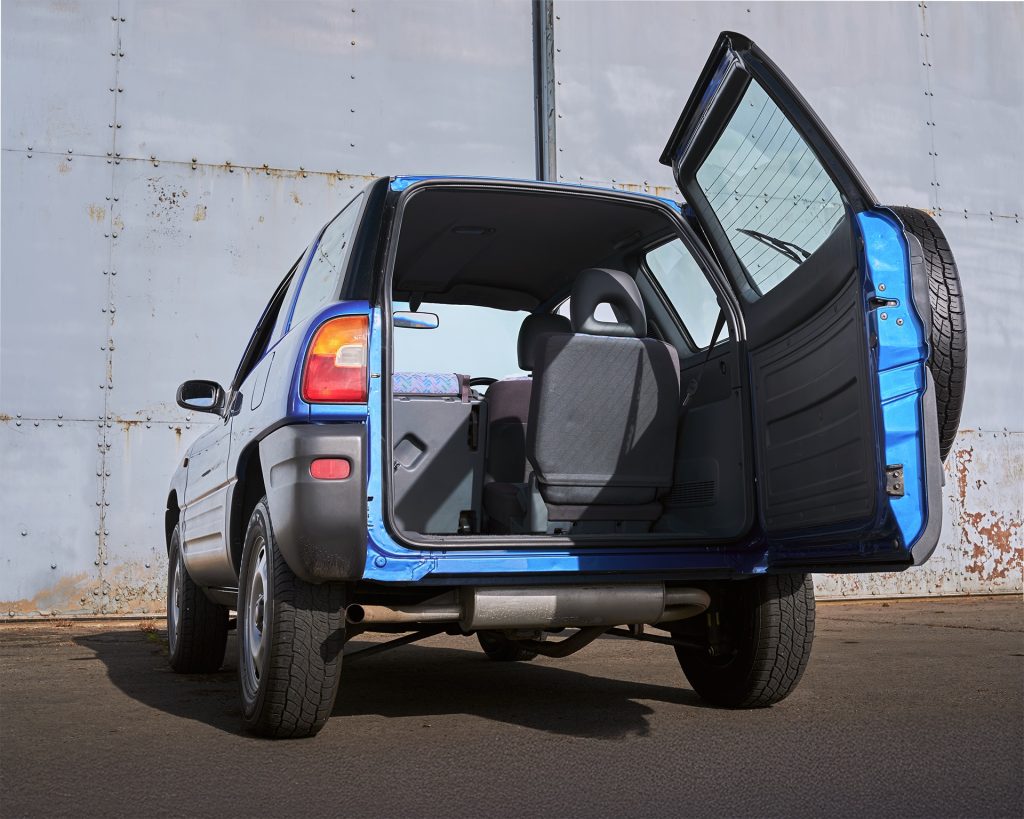
* * *
The Best of British Index Pick: 1959–68 Austin-Healey 3000
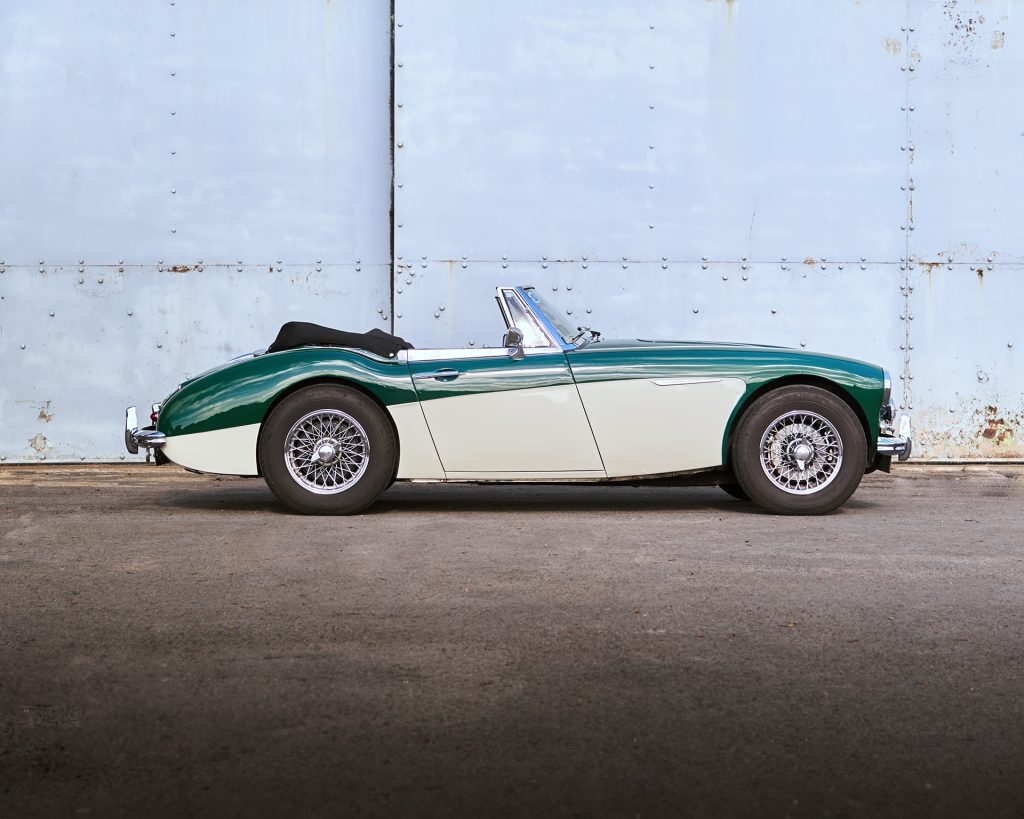
When you think of classic British sports cars, the Austin-Healey 3000 is probably close to the top of the list. It’s not just an iconic shape, it remains a very usable car, according to owners Jonathan and Carolyn Woodrow.
“We wanted a usable classic for both local and foreign trips,” Jonathan says. “I chose a middle-generation Healey as it combined classic styling with some of the more practical additions on later cars, like winding windows and a simpler hood.”
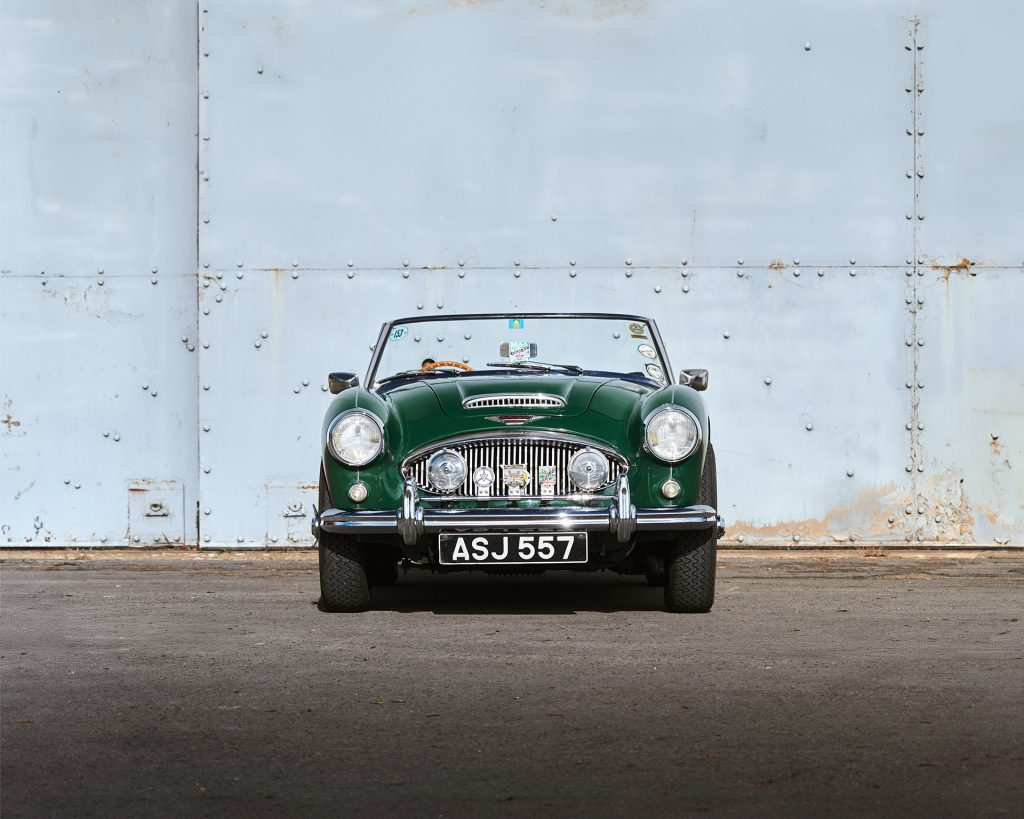
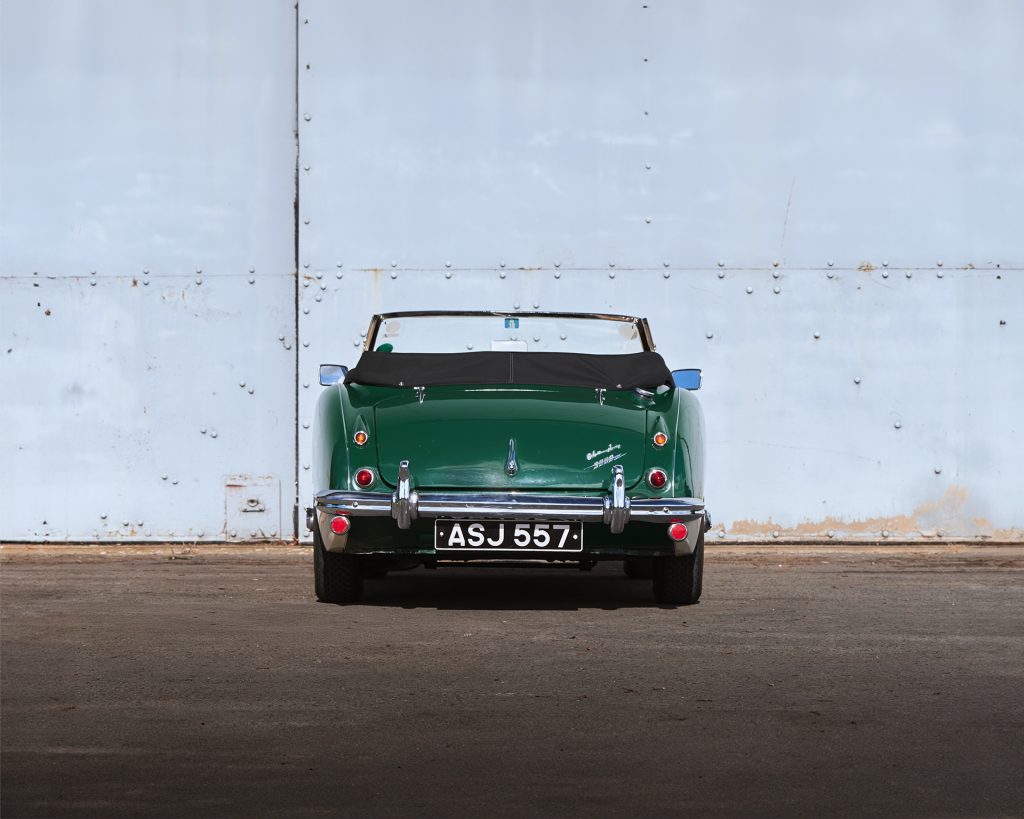
The Woodrows have also added a few subtle modifications to make it a more comfortable touring car. “It has modern dampers and four-pot callipers on the front. A rear anti-roll bar has really sharpened the back end, and LED bulbs all round mean that you can see and be seen. Parts supply is excellent.”
The car has taken them as far afield as Le Mans for the Classic and has completed the Daffodil Run, which the couple help to run. Most importantly, it’s given them access to a huge friendship group. “The social side of the club scene is superb,” Carolyn says.
In value terms, the Austin-Healey 3000 has been flat over a long period of time: Since May 2015, UK Hagerty Price Guide values for a #2 “excellent” example have varied by less than 10 per cent, and they currently sit at £45,400, although that has recently dipped. In real terms, accounting for inflation, it means the model is much more affordable than it was a few years ago. Demographically, it’s still firmly a baby boomer favourite, with more than 50 per cent of owners falling into this age bracket, way over the 32 per cent mean across all cars. But it may be finding favour with the younger generations: Millennials now account for 11 per cent of owners, up from around 2 per cent five years ago.
Value Range (Mk I): #1 – £70,000 #2 – £44,400 #3 – £30,000 #4 – £22,900 (+13–25% for Mk III)
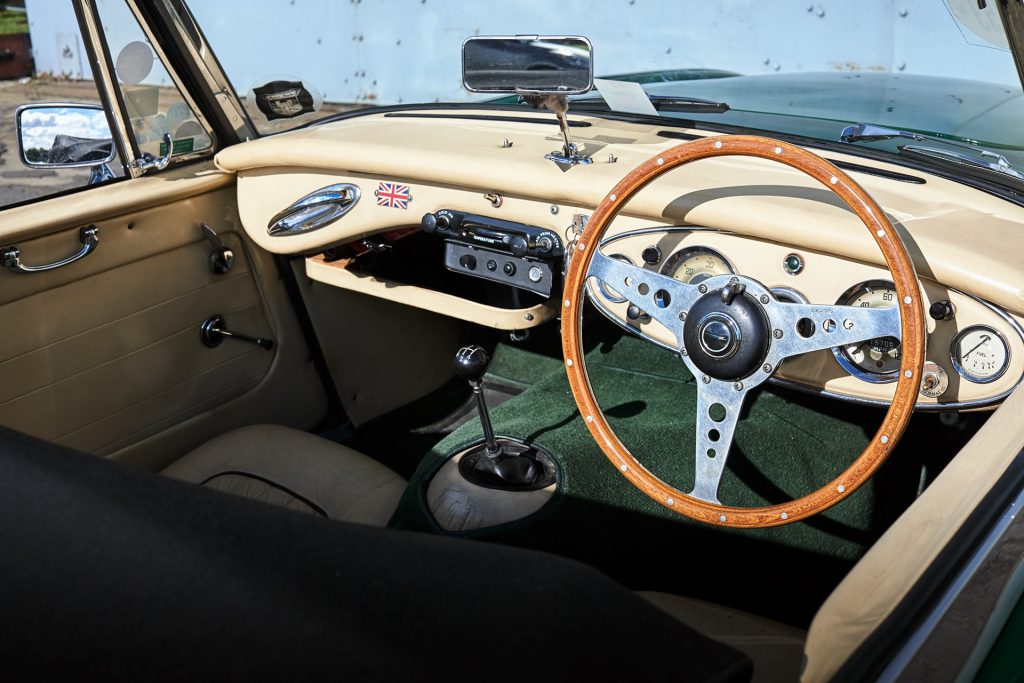
* * *
The Italian Pick: 1992–98 Maserati Ghibli
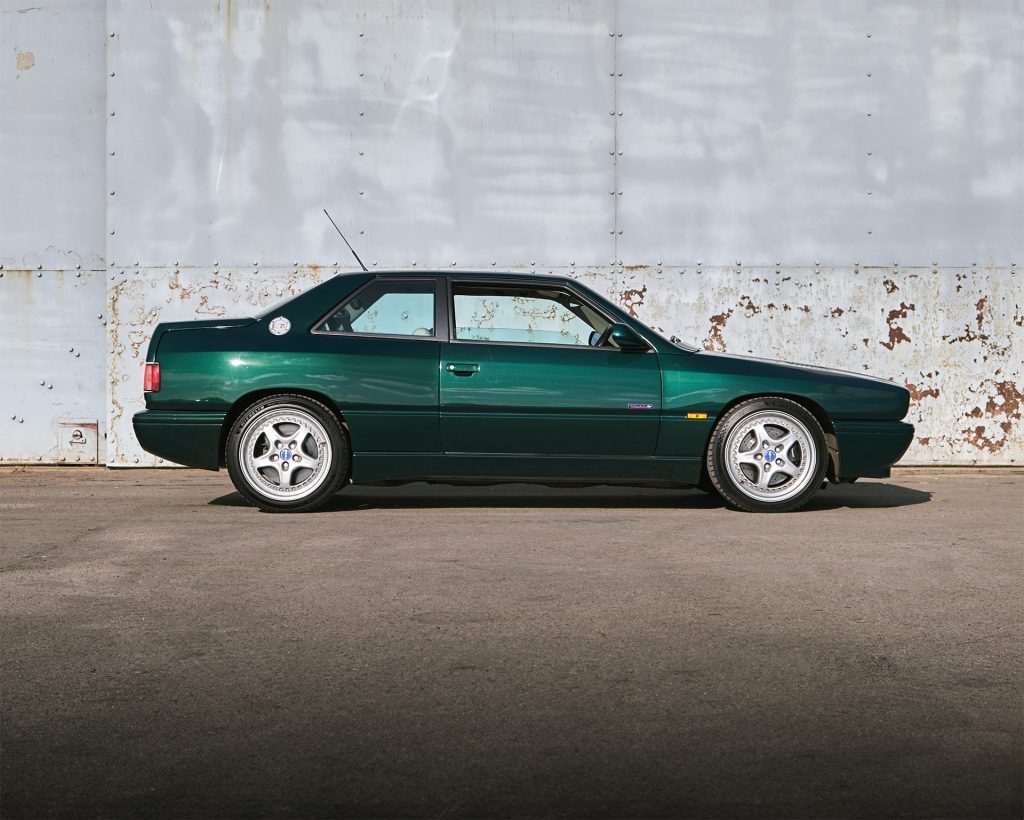
Readers of Hagerty’s media stories will know that writer Nathan Chadwick is a fully dedicated petrolhead, and his job has given him the opportunity to experience a huge range of cars over the years. “The Maserati Shamal, Lancia Delta Integrale, Alfa Romeo SZ . . . I’ve driven them all,” he explains. “But the Ghibli Cup is probably the best of all of them. It’s my dream car, and I jumped at the opportunity to buy it when I had the chance.”
Hagerty accepts that the AM336 Ghibli Cup is a rare beast, with only 26 UK cars built, of which 23 are believed to exist. It, along with Maserati’s Shamal flagship, marked an evolution of the previous Biturbo, and Hagerty is using it as an example of this entire model family.
When you look at the Ghibli, two elements hit you. First, the poised Gandini styling of boxy, wide arches is absolutely of the moment. Second is the sheer, unapologetic amount of power that emanates from under the bonnet: With 325bhp from its 1996cc engine, it pushed out more bhp per litre than any production car at the time – a period that included the McLaren F1, Ferrari F50, Bugatti EB110, and the Jaguar XJ220. There’s also a rarity to the entire Biturbo family that makes them the centre of attention at any show: Hagerty tried to find a standard car for the shoot, and despite reaching out to the owners’ club, we couldn’t find a car available on the day.
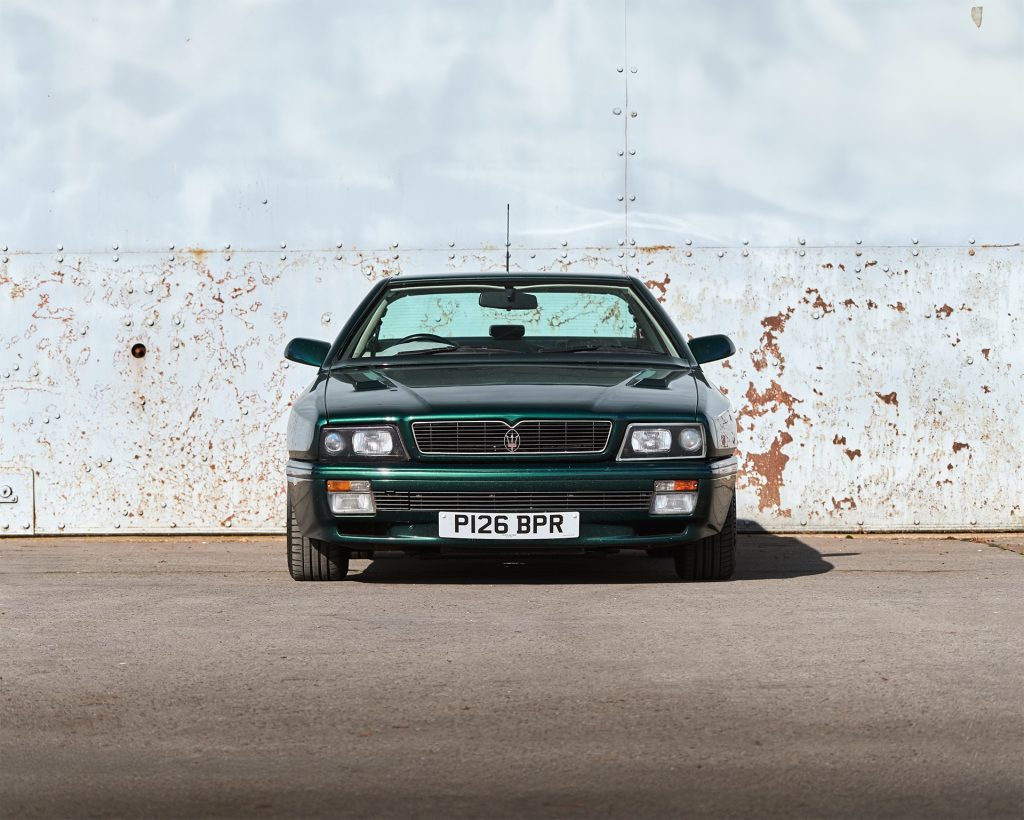
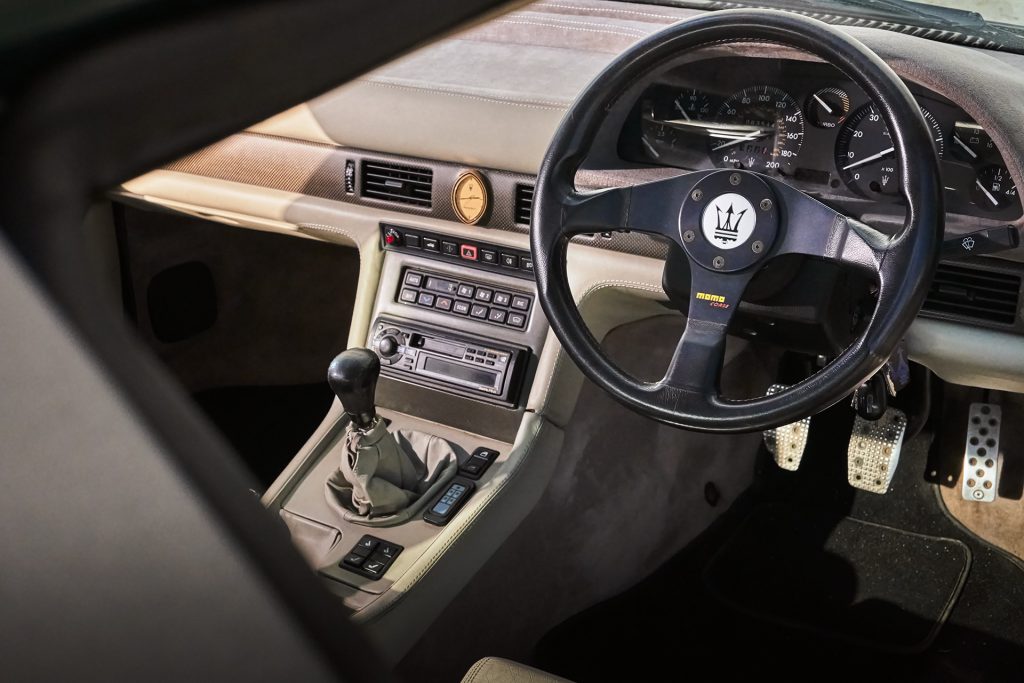
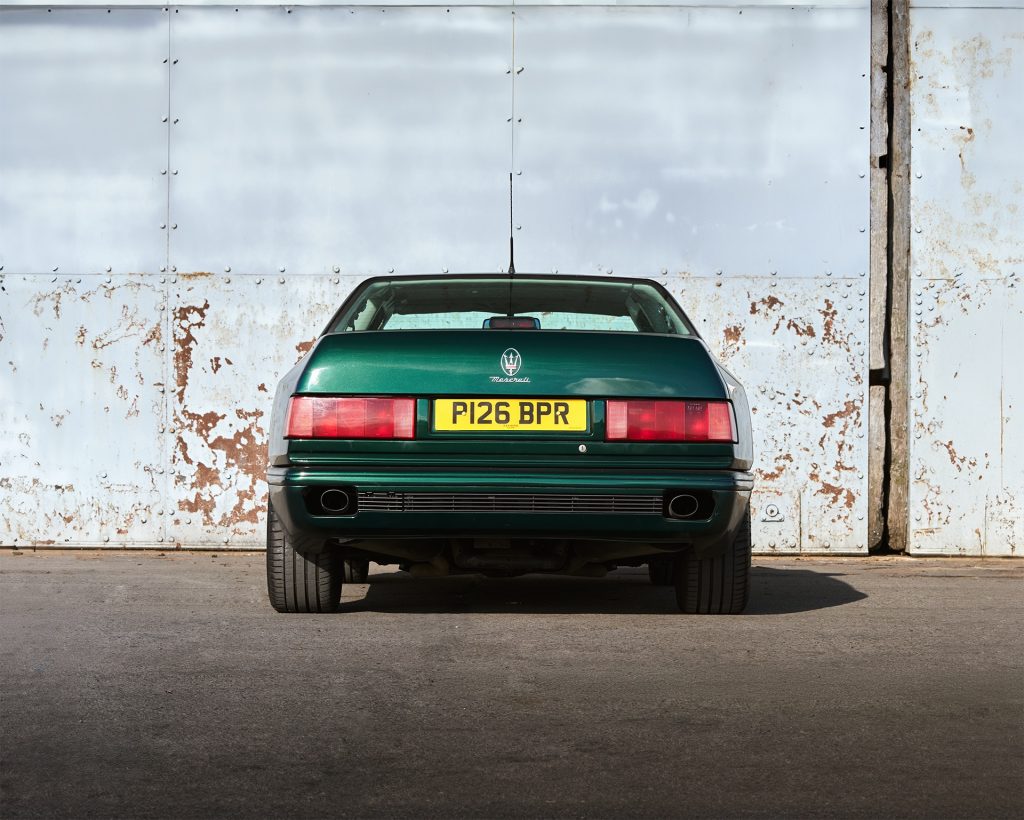
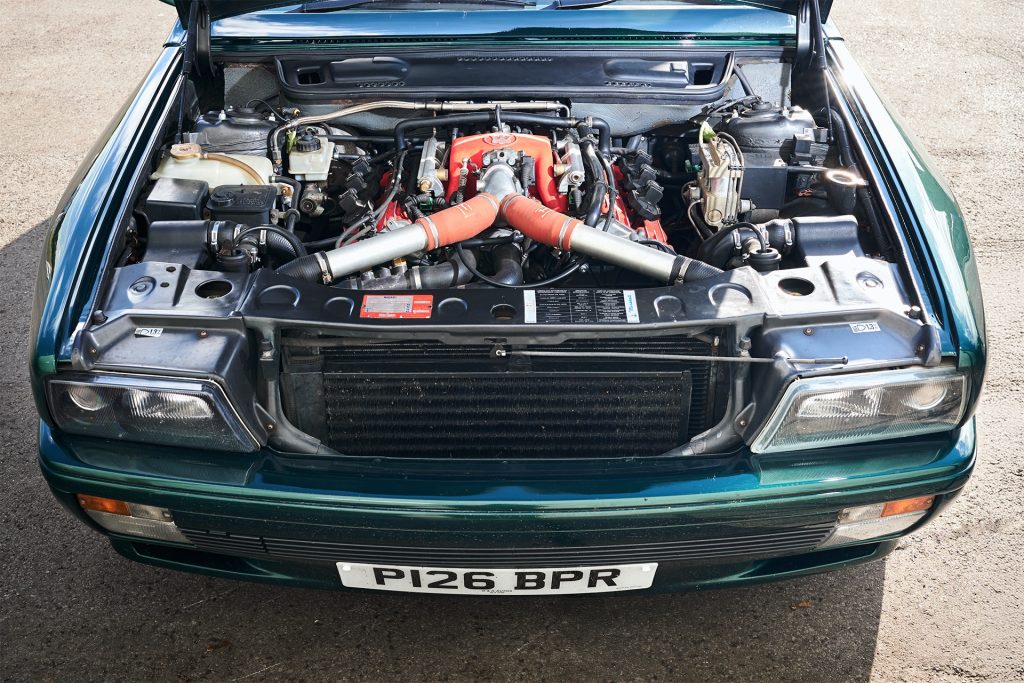
The other attraction of this group of modern classic Maseratis is that there’s a car for many different price points. Standard, base Biturbos with middling miles are still for sale for under £10,000. A good Spyder is double that, while the Shamal is currently valued at £53,000 in “excellent” condition in the UK Hagerty Price Guide. The Ghibli Cup is in the middle, with the current equivalent Hagerty value standing at £36,800.
The car does come with a caveat though: As with many classics, those with the cheapest price on the windscreen may be more expensive to maintain, and for a 1980s/1990s-era Maserati, the bills may be significant. “When buying one of these cars, work out what you need to replace and factor the price of those parts into the deal,” says Chadwick. “New old stock headlamps are £2500 each, and there are no replacement fuel tanks, for example, although other parts are now being reproduced through 3D printing.” Servicing may also be expensive. “There aren’t many Biturbo specialists, and some engine work may require the engine to be removed. Try to find a car that has already had money spent on it.”
Value Range: #1 – £30,100 #2 – £20,700 #3 – £14,200 #4 – £9400
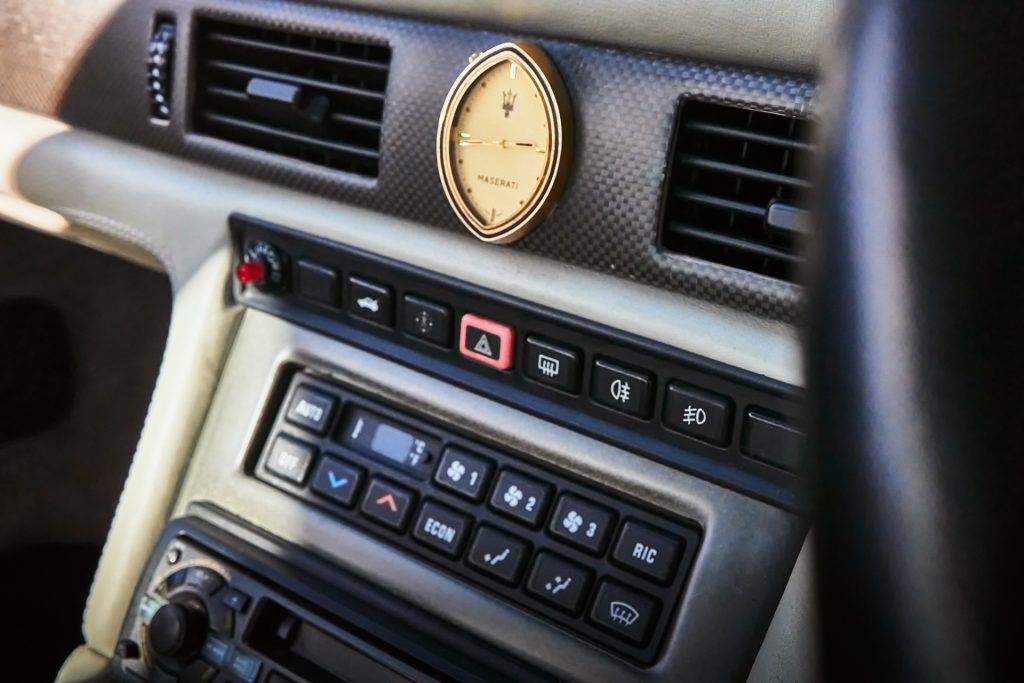
* * *
The Quirky Pick: 1991–96 Peugeot 106 S1 Rallye
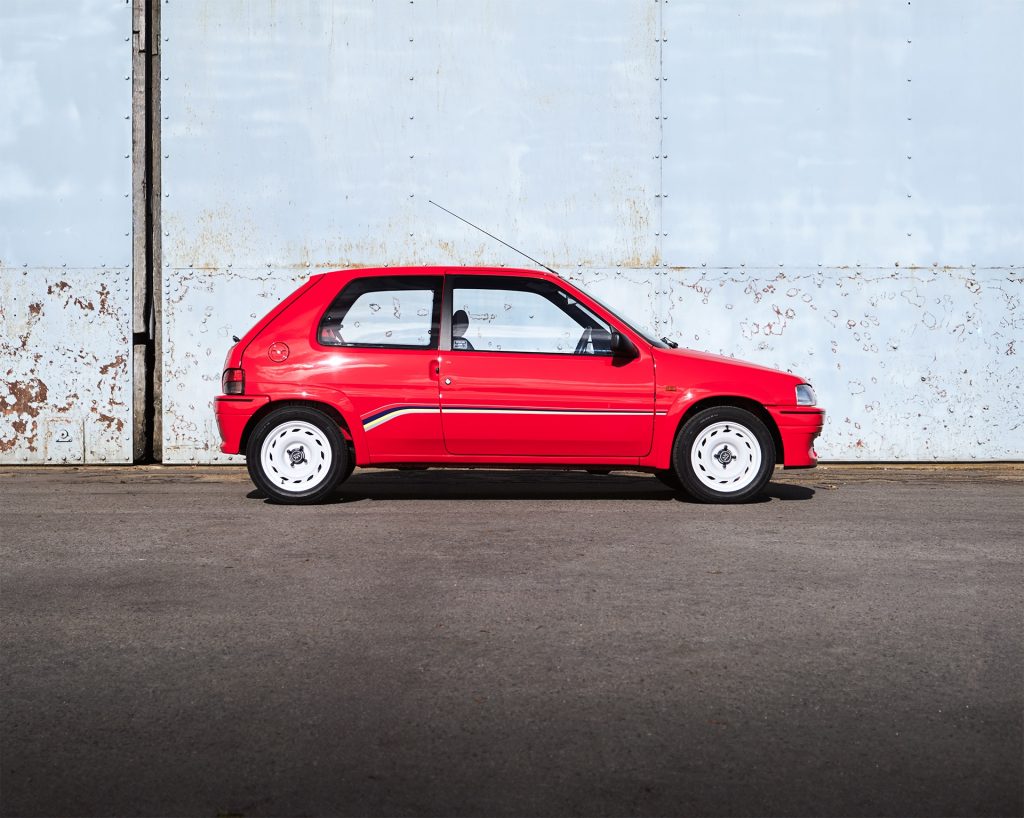
Earlier this year, a group of us met online to sift through the hundreds of entries for Hagerty’s Festival of the Unexceptional concours. Of all the cars we looked at, one drew more love than any other: a tiny, peppermint green Peugeot 106.
Some remember the 106 as their first car or as the runabout their gran drove to the shops, others as the hot hatch that dominated group tests back in the day in GTI form. We found a really special car for the Bull Market shoot – a 106 Rallye, one of the early Series 1 cars with a 1.3-litre engine designed as a homologation special, owned by Nick Charles.
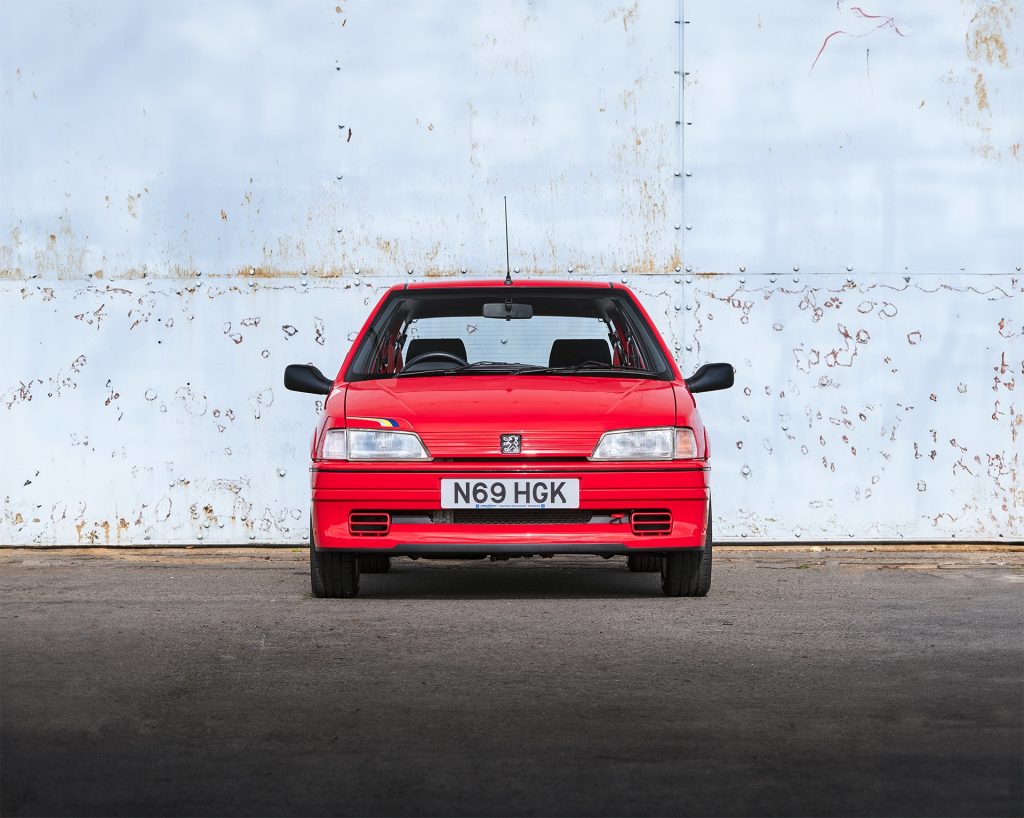
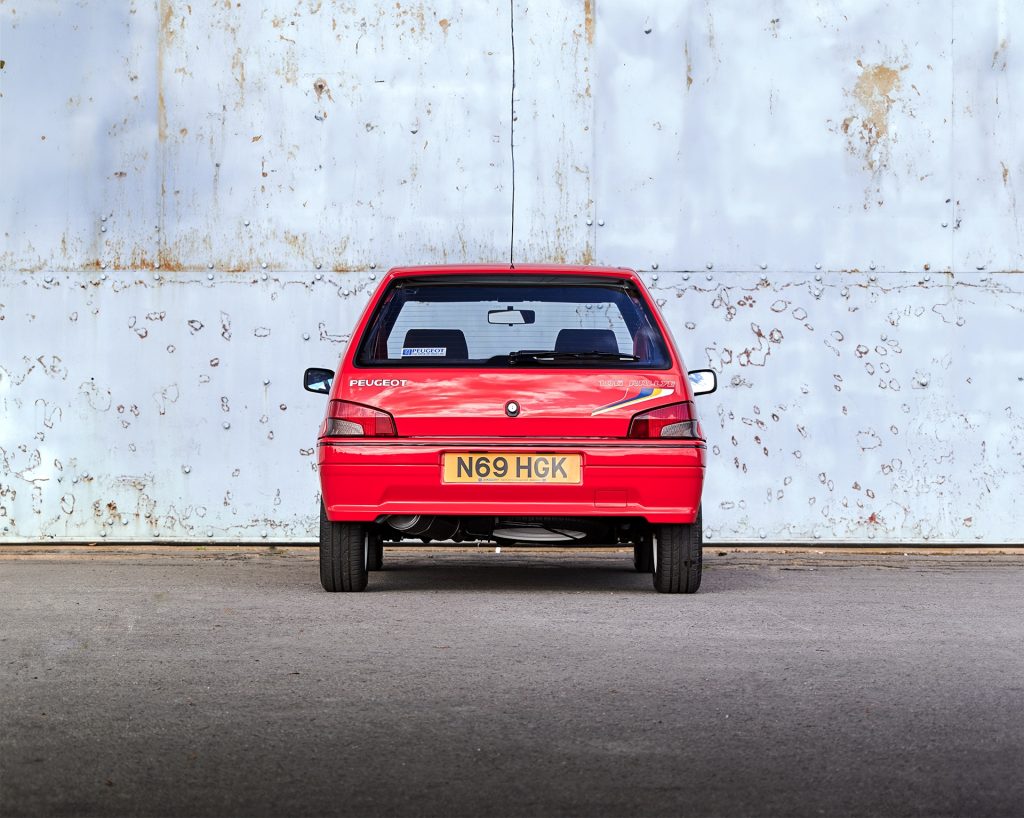
“I used to race the 106 GTI, but when I found this Rallye, I had to buy it” says Charles. “It was a little tired, and I have spent the last few years bringing it back to standard condition with my dad. It’s now a great, fun car – the engine really takes off over 5000rpm and the handling is great. You feel fast even when you’re going slowly!”
Inside, the Peugeot has a great combination of that airy simplicity of 1990s cars along with French quirkiness. The red carpets, unique to the Series 1, feel very much of the era, and the seats, which Charles said tend to fade on many cars, are pristine in this one.
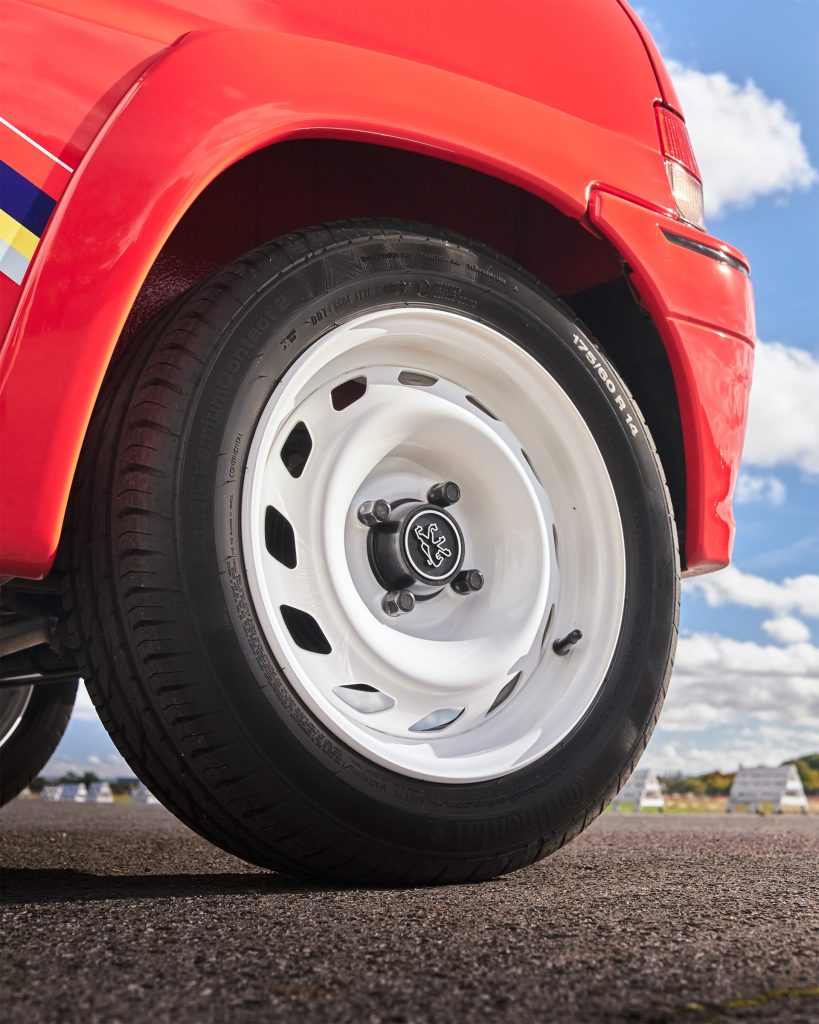
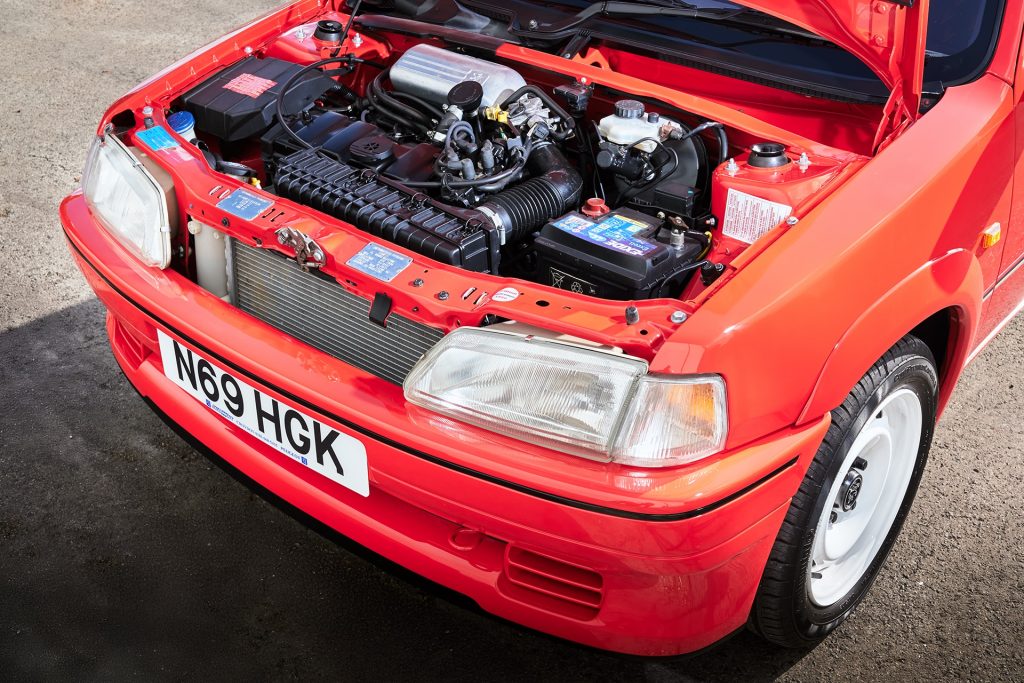
Mechanically, the 106 is relatively straightforward. “Corrosion can be an issue, but replacement panels are available, and most mechanical parts are easy to buy. Standard parts like airboxes can be hard to find, as many of these cars were modified early in their lives.” They are relatively easy to work on overall, Charles says, “although some things are tricky – the wheel bearings are a difficult job, and the gearbox needs the correct oil, otherwise it can be notchy.”
Hagerty considers the Peugeot 106 to be great value compared with some of its rivals. The Series 1 106 Rallye like the one in our photoshoot, in 'excellent' condition, is listed in the Hagerty Price Guide at £12,400, around 45 per cent less than the very collectable 205 GTI 1.9. Originality is critical, but with their homologation credentials, limited numbers, and instantly recognisable looks, these cars tick many of the requirements of a collectable car.
Value Range: #1 – £16,400 #2 – £12,400 #3 – £10,900 #4 – £8900
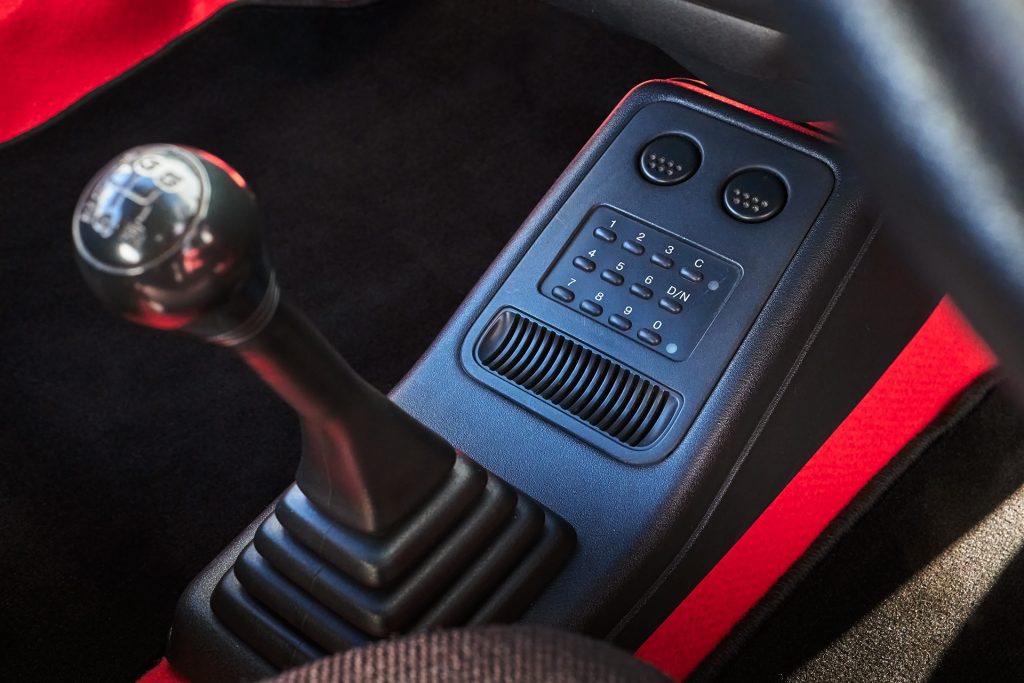
* * *
The Offroad Pick: 1994–2002 Range Rover P38A
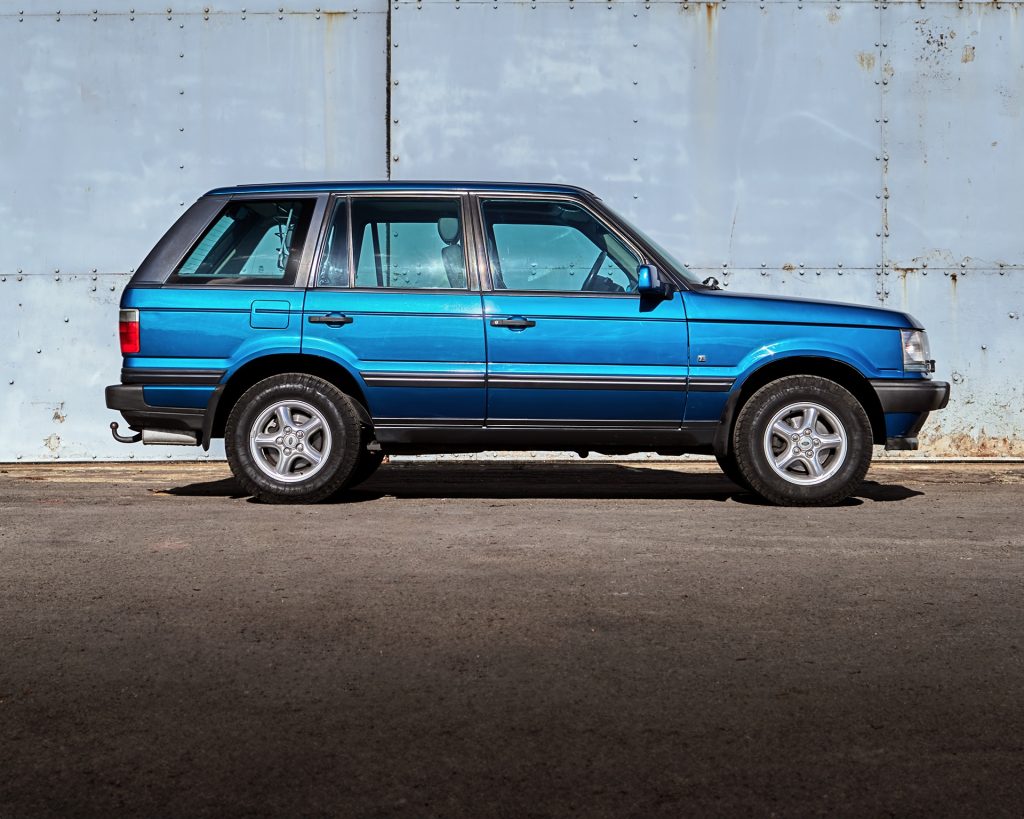
The sequel to a classic is always hard to do. Whether it is a book, a movie, or a well-loved car, creating something that maintains the tradition of the original whilst forging its own path is very difficult.
The replacement for the classic Range Rover faced other challenges, some of its own making. It not only had to stand apart from its predecessor but also its stablemate, the Land Rover Discovery, not to mention all the other SUVs emerging onto the market. The result, now commonly known as the Range Rover P38A, was a vehicle intended to be stronger, more luxurious, and offer more street presence than anything else on the road.
The owner of the P38 sourced for Hagerty’s Bull Market, Rory Brown, believes that Land Rover achieved its aim. “It puts a smile on my face every time I drive it, and it still gives you a feeling of luxury and security.” Brown was initially looking for something more mainstream but fell in love when he saw the P38 for sale three years ago. “It has soul,” he says, and the 2.5 diesel straight-six engine, based on a BMW M51 block, has been extremely reliable. “I even drove it to the Outer Hebrides, and it didn’t miss a beat!”
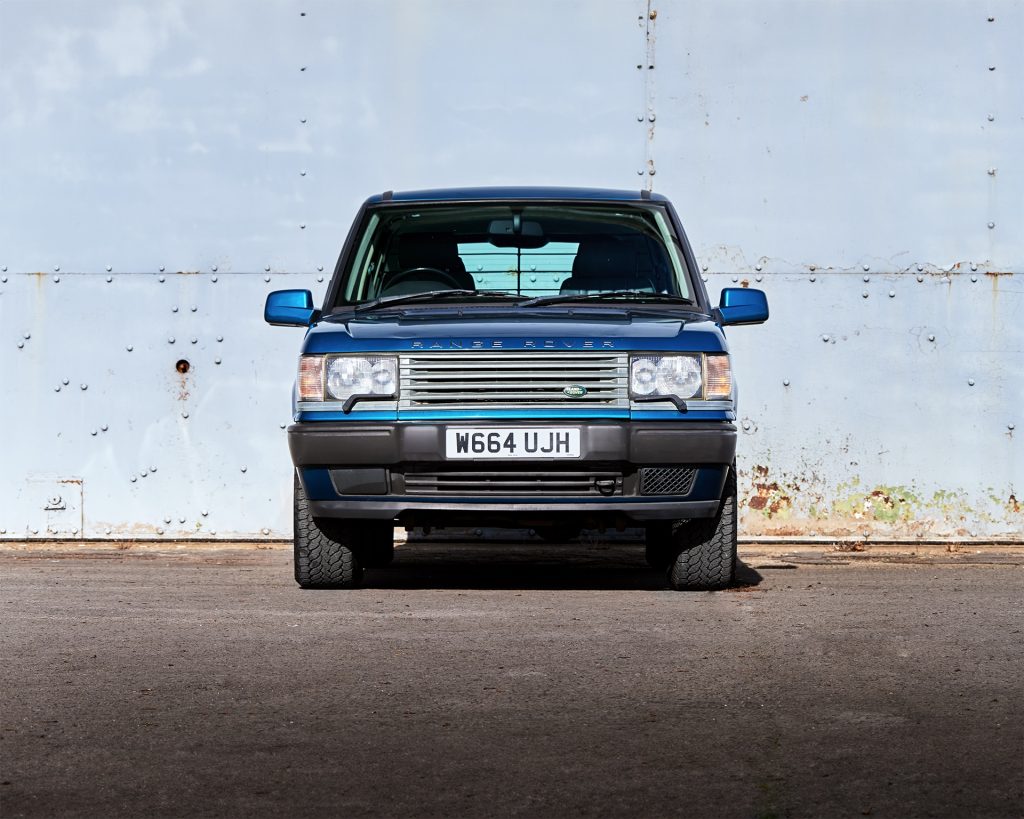
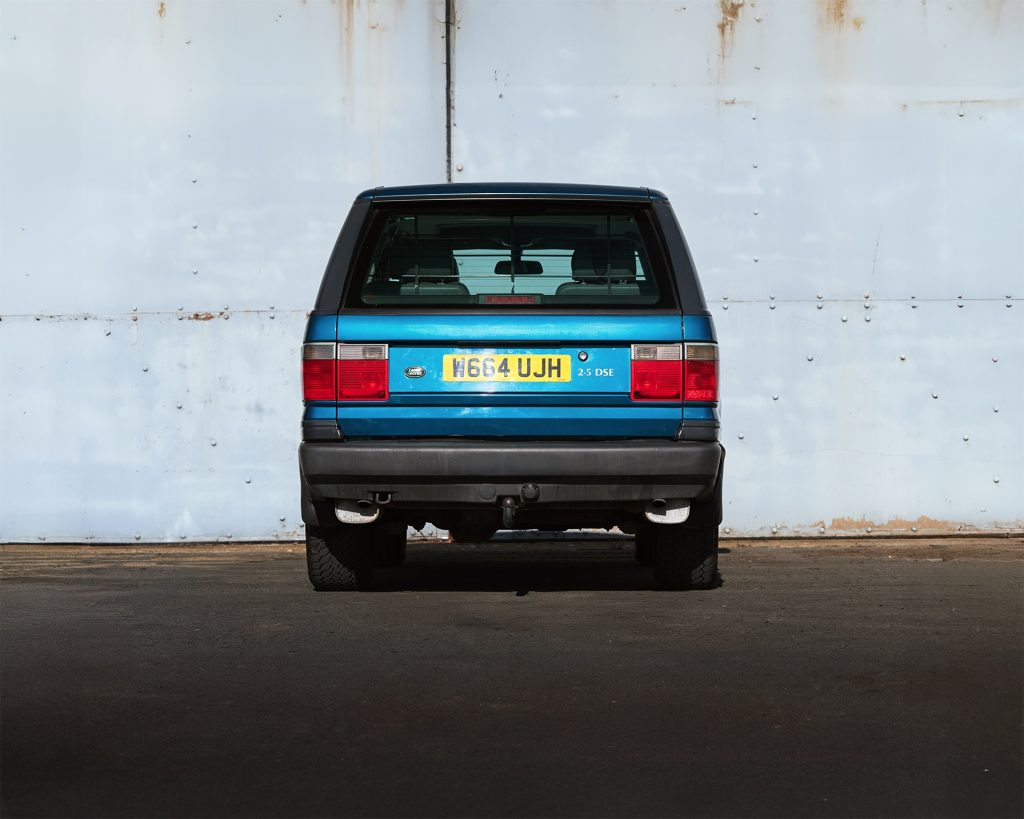
Other than springs replacing the air suspension, a frequent modification on the model, Brown’s P38 is standard, and he hasn’t had to do much to it other than regular servicing.
Visually, the P38 is still imposing. The interior is pure Gen X luxury: acres of leather, big, robust buttons and dials, and a driving position that feels like you’re someone special. Outside, the clean lines have aged well, and the car has a reputation that is rare and hard to define: It is cool. A yellow P38’s starring role in the 2004 movie Layer Cake didn’t hurt the car’s kudos one bit, especially as the hit film was credited with launching Daniel Craig into the role of James Bond.
The P38 Range Rover is a car that is currently extremely affordable, with the cheapest runners advertised for under £1000, and even top-spec, low-mileage, limited-edition models in concours condition rarely reaching more than £15,000. Plus, they are getting rarer: Social media groups are full of cars being broken for parts or heavily modified for off-road use. Find an original, well-maintained example, and it could offer a lot of value for money, especially as engines can clock up huge miles and vehicle excise duty (“road tax”) for cars registered before 1 March 2001 remains at a standard, fixed rate.
Value Range: #1 – £7400 #2 – £3900 #3 – £1500 #4 – £800
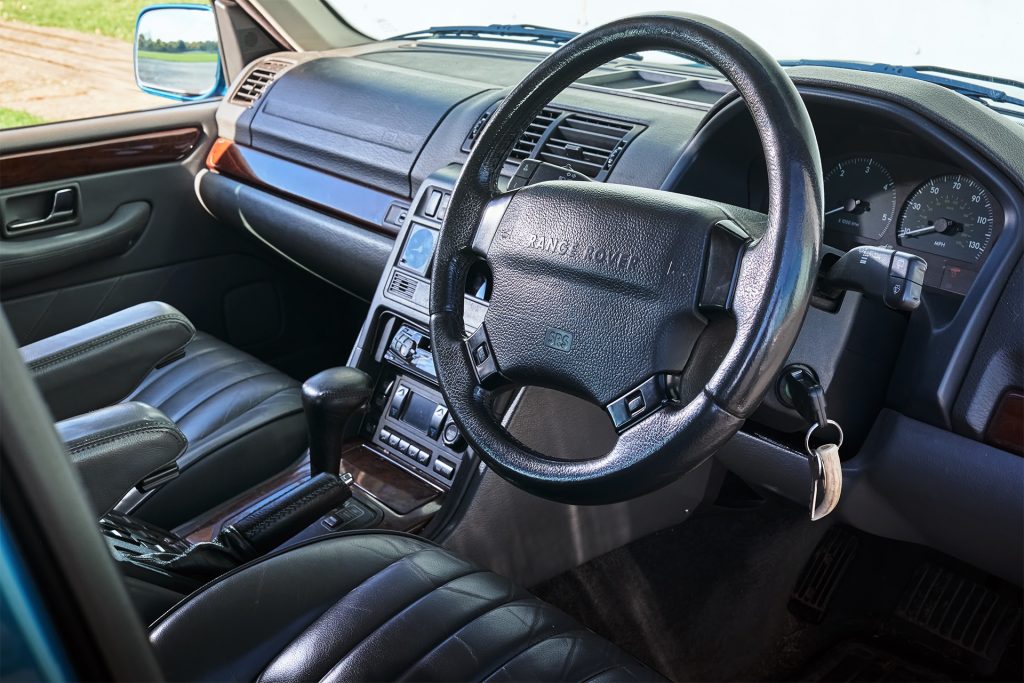
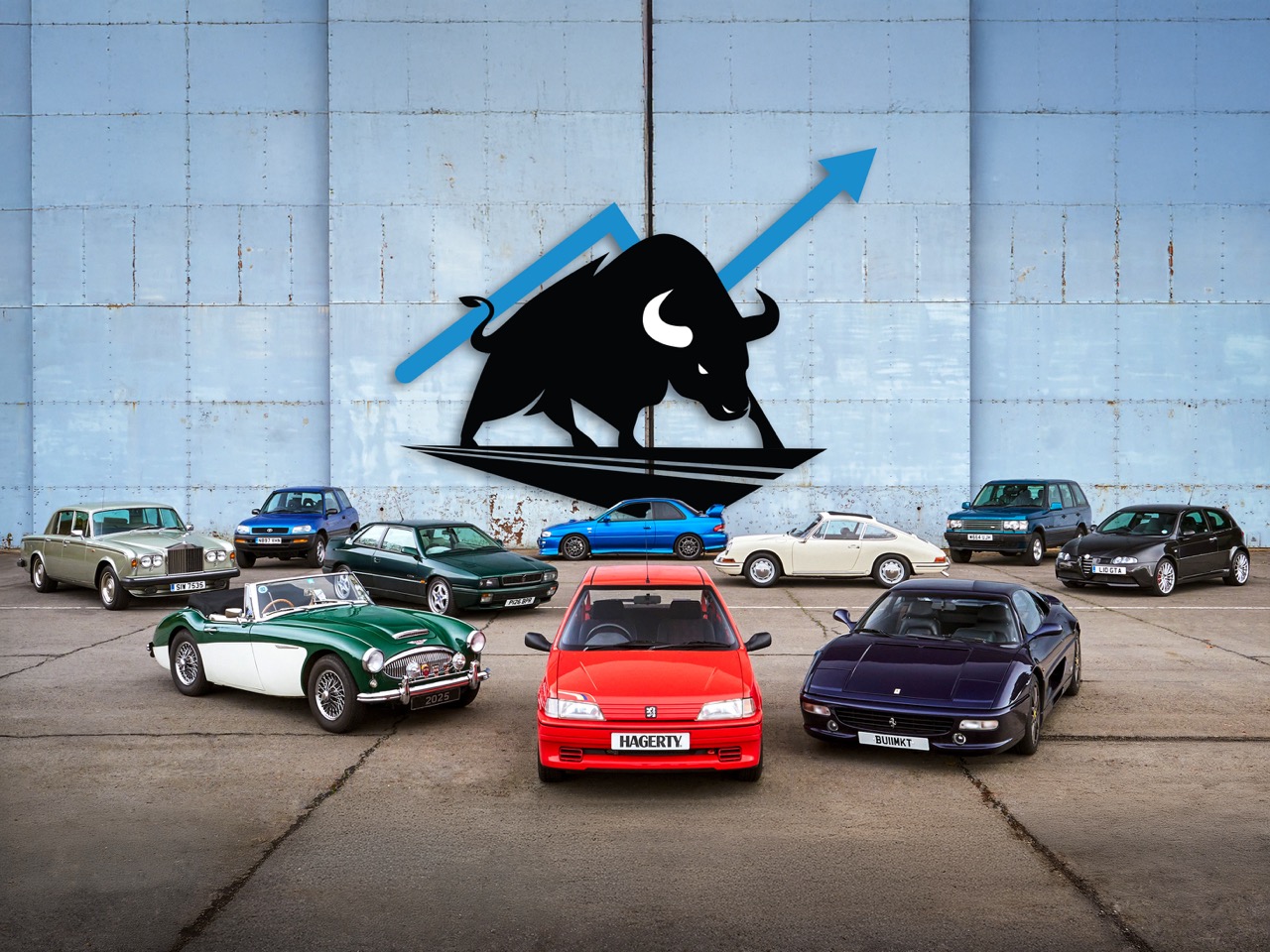
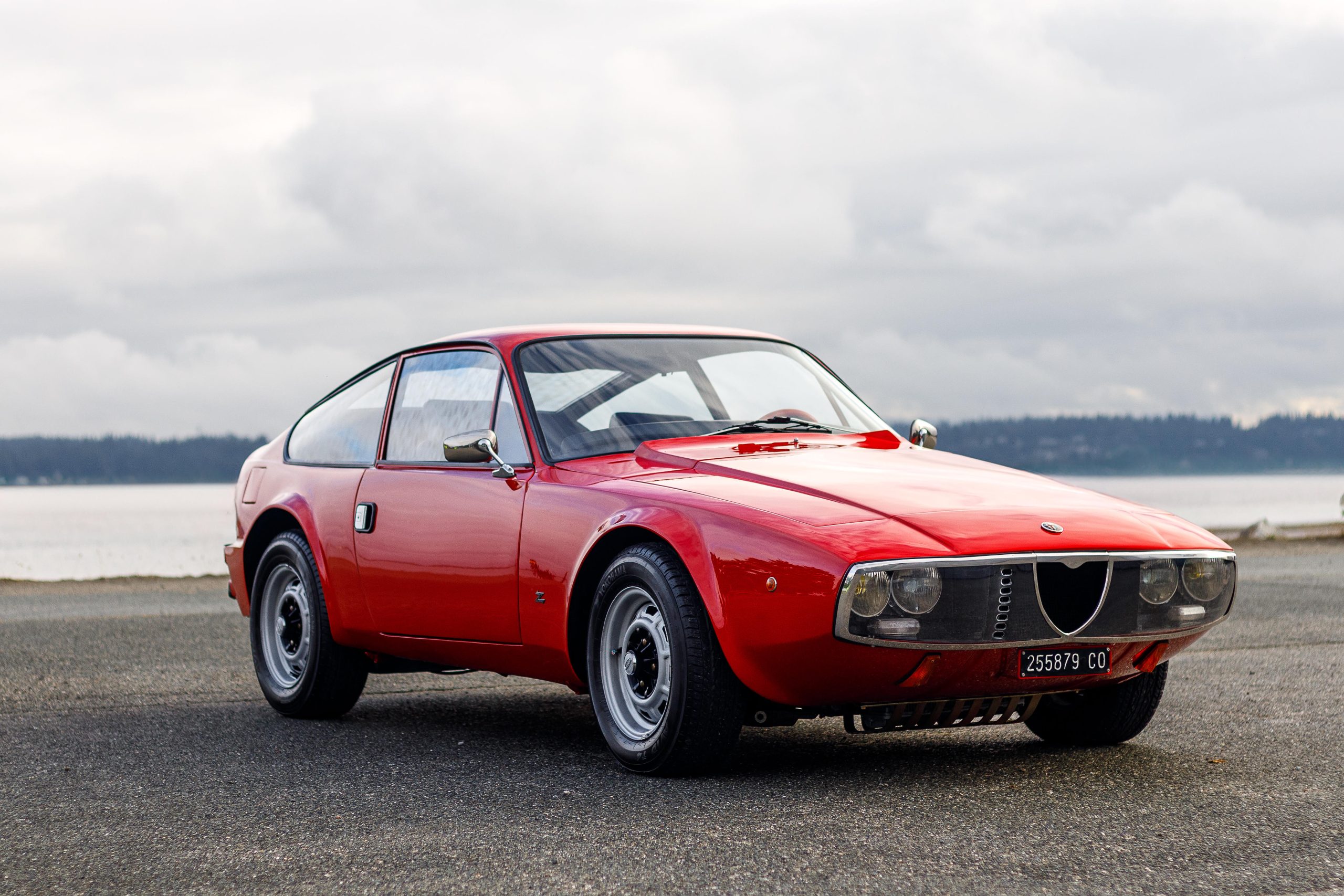
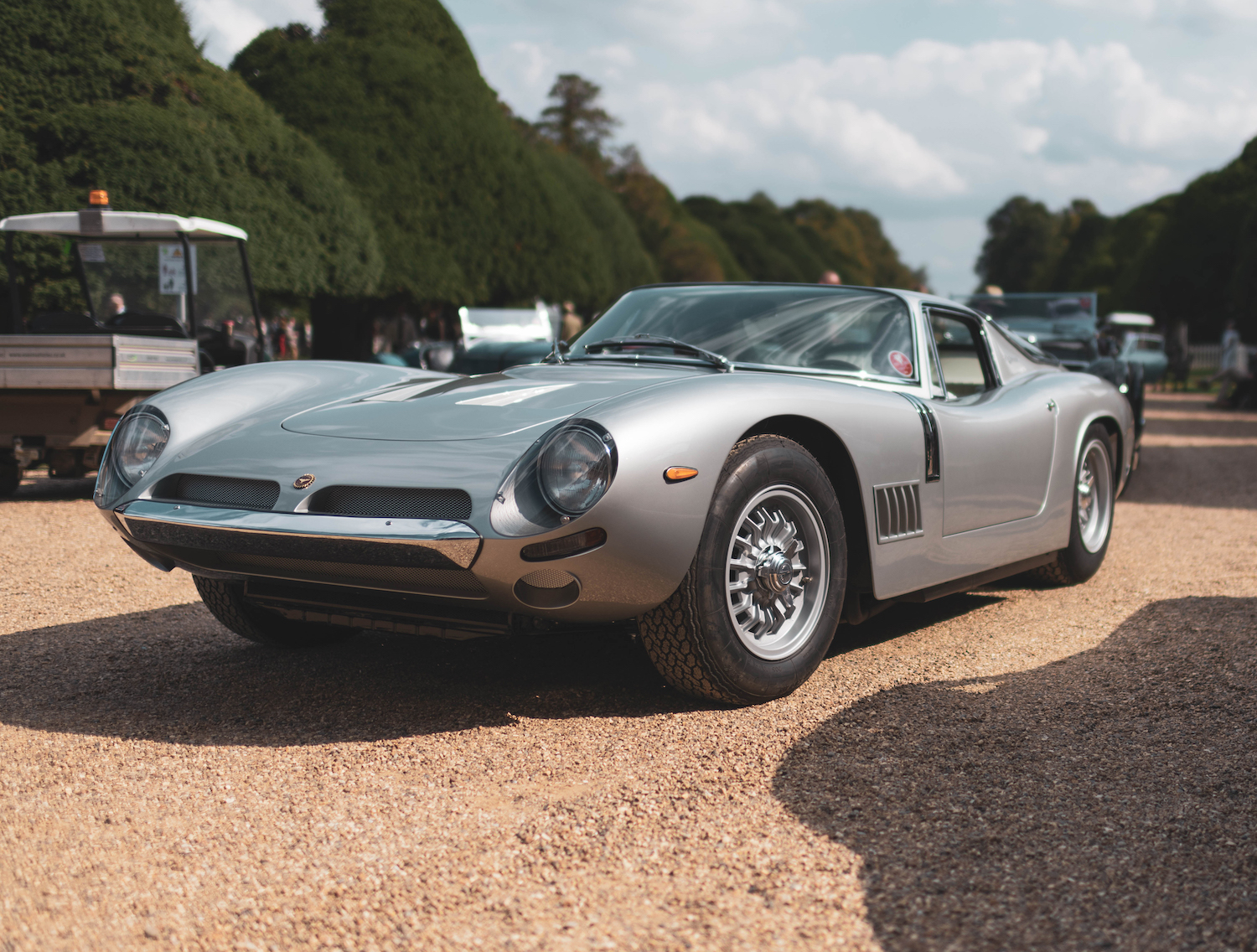







That 2000–01 Subaru Impreza P1 is my favorite of this list. I wish we had these in the USA. That 2002–05 Alfa Romeo 147 GTA would be my second place just for that beautiful engine.
Made me laugh, I’ve owned several “future classics” that never really worked out. Now I find out that our two “his & hers” runabouts are classics! ( Toyota RAV4). We do love them though!
Rav4 phase 1 is a certain future classic.
I daily mine, makes a great little van, especially with side hinged rear door, very practical. I hardly ever use the rear seats which fold up cleverly. it’s a GIANT edition and a GSX, which was the range topper of the lightly facelifted first generation. Mine has been to FOTU once, with it’s GIANT mountain bike firmly attached to the roof bars.
I always liked all the different limited editions such as Reebok, GIANT, etc.